Traveling Independently in China — How It Differs from in the West
Travel and tourism isn't as easy to arrange or enjoy in China as in the West. Traveling independently in China, whether alone, with your family, or as a group, is usually a big adventure, and a lot of work, if not a nightmare of hassles.
Independent travel is harder in China than in Europe, for example, as so many things are done differently and in a more complicated way. Below are the things you should consider, before going it alone — self-planned and self-guided — instead of joining a group tour or investing in a private tour.

4 Keys to Traveling Independently in China
- 1. Spend as much time as possible preparing yourself for what to expect to avoid tourist traps , China holiday wreckers, and culture shock stress.
- 2. Learn as much useful Chinese as possible before going, and keep learning (with a Chinese language app) in China.
- 3. Plan/arrange everything well to get the most out of the sights, and to avoid being up the creek without a paddle.
- 4. Be patient, tolerant, rest more, and take it slowly to avoid frustration.
Basically, the key difference between traveling alone in China and in the West is that it takes much more time. If it doesn't, you're missing out, or risking trouble. See why below according to the five key aspects of your trip…
1. Airports and Flights
These offer a very similar experience and service in China to taking a plane in the West. There is even English signage and service. So far so good…
2. Transport in China — Chinese Needed
Once on the ground in China, you will need to have thought about how you will get around. China is vast, and walking is not practical for much more than central locations and hikes. N.B. Find an alternative for Google Maps or a VPN app as the China firewall blocks much of the Internet.
The need for a knowledge of Chinese, the more the better, will soon become apparent when using transport in China, or even planning it. See more summarizing China Transportation or read on for how the main methods of transport differ.
Crossing the Road — Be More Careful
There are different traffic patterns, different laws, and less law following in China, so you will need to be more careful in order to cross the road safely in China .
Renting a Car — Not Recommended
Driving in China is not advisable for a number of reasons. The first is that you will need to sit a test on Chinese traffic law and driving knowledge to obtain a license and drive legally.
China's roads are not for the faint of heart. Even if you take the written test in English, you'll find that once you get on the road, signs are in Chinese! Then there are the unfamiliar (inconsiderate) traffic behaviors and heavy congestion, the stress of finding somewhere to park, awful road conditions in places, and the time-consuming trouble and stiff penalties if the worst happens and you have an accident.
Taxis — Beware Scams
Not all China's taxis are legitimate, and even the registered ones may use such scams as overcharging, taking you to the wrong place (for a commission or just because it's easier), and giving you fake money. Beware scams. Prepare your destination address in Chinese, and ideally some basic vocabulary on giving directions. Read more on Taxis in China .
Buses — Often Uncomfortable
Whether using a city bus or long-distance bus the main difficulty is having enough Chinese to get on the right bus and get off at the right place.
Many Westerners find Chinese buses more uncomfortable than those back home due to smaller, harder, dirtier seats; bumpier roads, over-crowding, smells (including smoking: most buses are non-smoking, but even the driver and exhaust system smokes on some rural buses), etc. See more on Road Travel in China .
Trains — Better than Buses, If Available
The preferred option to long-distance buses are China's trains, if they're available. If you don't book them in advance popular trains get sold out first. Then you may find yourself waiting at the station for a long time. Trains are typically packed to the point of having "standing tickets".
China's trains are better regulated than buses and the service is generally very good, particularly if you use the High-Speed Railway. However, you will still need to use Chinese to get the tickets and navigate the unfamiliar station layouts. See our Guide to Train Travel in China .
Private Transport — Often a Welcome Alternative
Having read the above you may want to consider departing from independent travel transport-wise, and instead taking private transport.
3. The Sights — What You Come All This Way to See
Planning your itinerary on your own, how will you choose what attractions to go to? And, even more crucially, what will be your plan of attack for getting the most out of each tourist sight? This often isn't as easy as in the West, where attractions are less exotic, the layouts are safe, logical, and well-designed, and information/signage is readily available in English.
Places You Can't Go On Your Own
First of all, there are some places in China that you are simply not allowed to see independently. Most notably is Tibet, which requires booking with a Chinese travel agent in order to obtain a Tibet Entry Permit .
Places You'll Struggle to Enter On Your Own
Other places give priority booking to Chinese travel agents, making it difficult, or almost impossible, for independent travelers to gain access. A recent example, receiving much hype this year [2016], is the Zhangjiajie Glass Bridge .
Other Places You'll Struggle to Appreciate on Your Own
Even if you get to the attraction you want to see, and queue up, and eventually obtain your entry ticket, how will you navigate and appreciate an attraction like the Forbidden City?
The signage is in Chinese, and if an "English" translation is provided it often looks like it's computer generated, untouched by anyone who understands English. The infamous humor of Chinglish signage abounds (e.g. the classic "Carefully Hit Your Head", which is what you feel like doing after reading much Chinglish!!! ), but that's no help if you're reliant on Chinglish for a clear explanation of an artifact or important safety instruction.
Without a guide you may wander through somewhere like the Forbidden City having only seen the backs of people's heads and selfie sticks at popular halls, or wander off track to halls of little interest. How will you even find the exit, much less avoid wasting your time, amongst the maze of buildings?
Even if you tag along behind a tour group (pushing to the front being more of a Chinese thing, so you'll be fighting the majority to do that), you may struggle to hear and understand any explanation given.
- Wouldn't it be better to have an itinerary tailored to your interests by an experienced expert in China tour planning, and to skip the queues?
- Wouldn't it be better to have a knowledgeable private guide to offer you enlightening answers related to your interests, and who knows the best view points and how to avoid the crowds?
4. Hotels — Easier to Arrange on Your Own Than the Itinerary…
A good hotel is not as easy to find in China as in the West. Here standards are different, less reliable, and even vary from region to region. 5-star in Beijing is not the same as 5-star in Zhangjiajie! A big outlay may go a long way, but is still no guarantee that you get what you want.
Use TripAdvisor, as the hotel websites won't tell you about the hard beds, leaking toilets, noisy environment, poor service, etc. that unbiased reviews will.
Hotel Booking
China's (larger) hotels can be booked online fairly easily, like in the West. Many hotels have English websites (the grammar may be disconcerting, but at least it's good enough for you to fill in a booking form). However, don't expect English-speaking staff at any but the largest establishments.
Booking in advance is recommended to avoid trailing from fully-booked hotel to fully-booked hotel in all but the slackest times for many places. This is due to China's huge, increasingly mobile population.
Help Is There If Needed
Some of our more independent customers choose to book their own hotels, cutting their tour costs. As flexible customized tour specialists we can provide as much, or as little, help as you need.
A company like ours, with decades of experience serving foreign travelers, can cut out all the hotel hassle, immediately selecting and suggesting hotels likely to be most suitable for you, and booking them.
We can also provide private transport to get you there and away, a driver who'll happily carry your luggage, and a guide to help you check in, not to mention to help sort out any problems once you get settled in.
5. Food — Even This Needs Planning
Food, it can't be under-emphasized, is very different in China. Traveling America or Europe unaided, you'd be bound to find recognizable menus and flavors without too much trouble — not so easily done in China! Before planning to go to China independently you should think what you will eat, especially if you have allergies, intolerances, or particular tastes.
Western food can be found in larger cities (in places besides McDonalds), but still may be a bit different to what you're used to. For the adventurous, pick a restaurant, point, and try. For those of you who want to stay on the safe side stick to what you recognize. Most cities have Muslim restaurants, which suit most Westerners' taste buds better than mainstream Chinese or other minority cuisines. There's more advice on our China Food Guide .
Food may be the decisive factor that makes you choose a private tour (with restaurants expertly chosen to suit you, and a guide to help you order), or a group tour with boring and standardized, but at least consistent, convenient, and reliable, catering. See the difference between a tour group restaurant and authentic Chinese food .
Alternatives to Independent Travel in China — Group/Private Tours
The above may have convinced you that you are now ready for the adventure of oriental travel alone, and are at least aware of the obstacles you may face… or that touring China on your own is not for you.
If you'd rather not face the challenges of travel in China alone, broadly speaking your options are twofold: group tours or tailor-made private tours. See 11 Reasons Your China Tour Should Be Private… Not a Group Tour .
With Us You Can Have the Best of All Worlds
With China Highlights you can have a combination of all three travel styles:
- independent travel (for what you're confident with doing on your own, saving service costs);
- group/package touring (for cheaper guided visits);
- privately-guided customized service (for where you'd like to discover more, and would like more quality assistance).
Essential Style Travel
Our most popular itineraries all have three travel styles to meet the needs of different travelers: Comfort , Discovery , and Essential .
Essential style tours only include the essential parts that are difficult to arrange on your own, so it's a way to mostly travel independently and still get a top-quality tailored trip. Take a look at the Essential -style customizable itineraries of our bestsellers:
- The Golden Triangle> — Beijing, Xi'an, Shanghai in 8 days
- Classic Wonders — Beijing, Xi'an, Guilin, Yangshuo, Shanghai in 11 days
- Visit our China tours page for more tour ideas.
If you are looking for something unique, we can help you plan and arrange your dream China tour step-by-step, with "unlimited" changes and free consultancy and quotation. Let us know your requirements to begin.
You Might Like to Read
- 6 Tips for Traveling Alone in China
- How Much Does It Cost to Travel China
- China's Development — How It Affects You, the Tourist
- How to Explore China's Off-the-Beaten-Path Places
- Top 20 First China Trip Tips — Know Before You Go
Get Inspired with Some Popular Itineraries
More travel ideas and inspiration, sign up to our newsletter.
Be the first to receive exciting updates, exclusive promotions, and valuable travel tips from our team of experts.
Why China Highlights
Where can we take you today.
- Southeast Asia
- Japan, South Korea
- India, Nepal, Bhutan, and Sri lanka
- Central Asia
- Middle East
- African Safari
- Travel Agents
- Loyalty & Referral Program
- Privacy Policy
Address: Building 6, Chuangyi Business Park, 70 Qilidian Road, Guilin, Guangxi, 541004, China

- Write For Us
- Search Flights
Travelling in China Independently: You Need To Read This
Ailish Casey
Ailish Casey is a travel writer and blogger based in London. More of her work can be found on her blog, ailishinwonderland.com.

As an Amazon Influencer, we earn from qualifying purchases you might make if you click any of the links on this page.
Updated Oct 15, 2021
Looking to travel in China Independently ? You definitely need to read this guide about China!
Many people believe it’s impossible, or at least incredibly difficult, to travel in China independently. However, while there are certainly some challenges for independent travellers, these can be overcome.
It just takes a bit of planning, flexibility, and patience. And despite its difficulties, China has loads to offer travellers, from its beautiful landscapes to its fascinating culture.
Here’s everything you need to know to plan your independent trip to China.
Check More Asian Destinations 🙂
- How to Save Money During a Solo Trip to Singapore
- North to South: How to Travel Within Thailand and Best Places to Spot
- Best 5 Trekking Spots in Nepal
- Check Out The Beauties of India: Ladakh Travel Guide
How To Plan Your China Trip
China is huge. You probably know that already. But only when you begin to plan a trip you do appreciate just how much there is to do. Not to mention how far apart the attractions are.
Unless you have an entire year to spend here, you’re going to have to narrow down the options to form a realistic itinerary.
First Figure out what exactly you Want To Do In China
Thinking about where your interests lie is a good start. Do you want to spend more time in the cities, or are you more interested in nature? Do you want to relax, or are you looking for something more active?
In a country this size, you can’t squeeze it all into one trip. So it’s best to ensure your time here is spent in the best way for you.
What Season Should You Travel In China?
Also consider the time of year you wish to travel. Spring (March to May) and early Autumn (September to mid-October) are popular times to visit, as the weather is warm and dry.
In the summer months of June, July and August, temperatures can be scorching. Summer is also the rainy season throughout China. Winter can be unbearably cold, especially in the north.
China Hotel Prices Through Out The Year
However, prices can plummet during the low seasons. So it’s worth considering travelling during off-peak times if you want to stretch your budget.
For example, in November, temperatures can still be quite pleasant in the Sichuan province, though hotel prices and entrances fees are slashed significantly.

Is China Cheap To Travel?
Travelling to China independently can be very cheap. Hostels cost as little as US$5, and are usually spotless and well-maintained. A basic hotel will only set you back around $40 per night, and you can splurge on more high-end accommodation for under $100.
Other daily expenses, such as food and local transport, are surprisingly cheap. You can eat your fill in a local diner for just $2, and a local bus or metro journey costs just 50c.
The costs start to rise the further you travel around the country. Overnight trains can cost upwards of $70, and internal flights cost even more (see “Getting There & Around” for more information).
The Cost Of Visiting The Sights In China
Visiting the sights and parks in China can also drive up costs. For example, to see the terracotta warriors at Xi’an, you’ll have to shell out $22, and visiting Jiuzhaigou costs a hefty $45.
Though of course, as an independent traveller, you are saving money compared to travelling on a tour!
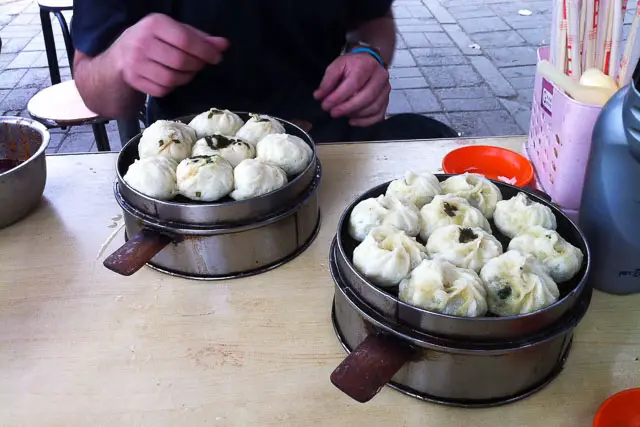
Do You Need A Visa For China?
If you’re visiting China independently, you’ll have to arrange a visa yourself . This can be a massive headache, as the requirements seem to be constantly changing. And there can be frustratingly little information available online.
However, if you arrange your visit to the embassy well in advance, and come prepared with all the paperwork you need, you should have no problem getting a visa.
What Do You Need To Get A Visa For China
In general, you will need to provide:
- Proof of entry and exit (plane or train tickets)
- Passport sized photos (some embassies insist these must be sized 48mm x 33mm)
- Proof of funds, e.g. a printed bank statement (this isn’t usually required, but best to bring it in case!)
- Hotel booking for your first three nights only.
- An itinerary for your time in China, which you outline on the visa form. This must include hotel names and addresses (though you don’t have to stick to this itinerary!)
Applicants used to be required to provide an invitation from someone in China. This was usually arranged by booking a hotel and asking them to send you an invitation.
Thankfully, this is no longer needed. Though check the most up-to-date requirements before you go, as the rules often change!

How To Get In China
Provided you have your visa sorted in advance, you should have no problems taking a flight into China. There are also several overland entry points from the surrounding countries.
However, keep in mind that in order to obtain your visa you must show proof of entry and exit, which may prove difficult if you are planning to enter and/or leave overland.
One way around this is to reserve a flight through an agency, use the confirmation to apply for your visa, then cancel your reservation. Of course, be careful to check that you can get a full refund!
How To Get Around Around China Independently
When travelling around China independently, it is possible to rent a car. Though this is a difficult process. There are a lot of hoops to jump through, and some high fees to pay. Read more about renting a car in China here .
Transportation Options In China
You can cover the massive distances between destinations in a short time by taking an internal flight. These can be booked just a few days before you fly, leaving your itinerary flexible.
In fact, it’s best not to book more than two weeks in advance, as flights are often subject to change or cancellation.
Trains and long distance buses are another option for getting from A to B. These are relatively comfortable and clean. Journeys can be booked at the train or bus station, though have your destination written down in Chinese if possible. Many hotels and hostels offer to book your tickets for you, for a fee.
How To Communicate With Locals In China
The biggest challenge to those travelling throughout China independently is communication. Unless you speak Mandarin, it can be quite difficult to book a ticket, or even to check the destination on the front of a bus.
Some tickets may also be printed solely in Chinese characters. See the “Tips for Travelling in China Independently” section for advice on overcoming this difficulty.
How To Order Food In China
Most restaurants provide photos of meals on the wall or on a menu, so you can order food without speaking a word of Mandarin. Better yet, eat at a street stall or open-air restaurant, where you can just point directly at the food!
However, without a guide or translator, it can be very difficult to convey dietary needs. The best way around this is to get a member of staff at your hotel or hostel to write down the phrase you need and show this to your server.
However, the term “vegetarian” doesn’t mean the same here as it does elsewhere- a meal that substitutes meat for tofu may still use meat in the sauce.

Independent Travel Tips For China by Destination
Some places in China are easier to visit as an independent traveller than others. When planning your itinerary, make sure you consider whether you can easily reach each destination without a tour, and that you can explore each place without a guide.
Here are just a few locations that are perfect for those travelling in China independently (though, of course, there are plenty of others!).
Travelling To Beijing Independently
Chaotic, crowded Beijing can be a little jarring, particularly for independent travellers. It can be hard to navigate here without speaking the language, and jostling through crowds can get stressful.
But give it a bit of time, and you’re sure to find something appealing about this behemoth of a city. Whether it’s marvelling at the Forbidden City, taking in the Beijing skyline from the peaceful Pavilion of Eternal Spring, or exploring the winding hutongs .
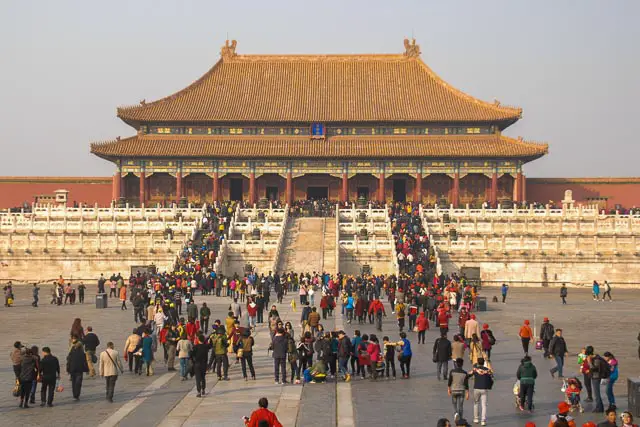
Reaching The Great Wall Independently
There are many different sections of the Great Wall to choose from. Mutianyu is well-restored and offers great views. Jinshangling is popular for those who wish to hike along a section of the wall. And crumbling Jiankou offers a glimpse of the wall in its original form.
The Great Wall can be frustratingly difficult to reach independently from Beijing. Although many sections only take an hour or two to reach by bus, bus schedules are constantly changing, and there are often no direct routes to the wall.
Many buses also terminate quite far from the wall, requiring visitors to take a taxi the remainder of the way. Even those travelling in China independently may want to book a day tour to the wall to take the stress out of their visit.
If you are adamant to visit independently, plan your journey with the help of your hostel staff, or seek out a help point at the bus station in Beijing.

Travelling To Shanghai Independently
Shanghai is one of the world’s largest cities, with a population of over 24 million . Independent travellers usually find the city fairly easy to navigate compared to other parts of China. However, English is not widely spoken here, and you will find the same translation difficulties as elsewhere in the country.
What To See In Shanghai
What you will also find, however, is a fascinating city with a fun nightlife and lots to see and do. Historical European influences can be seen throughout the city, alongside traditional Chinese architecture.
Lively markets, beautiful temples, and endless restaurants make Shanghai a popular choice for both independent travellers and those on a tour.
Travelling To Xi’An Independently
Many travellers headed from Beijing to Chengdu stop in Xi’An to break up the massive distance. Though this city is also a popular destination as it the home of the Terracotta Army . This is a massive collection of over 2,000 statues of soldiers and horses.
The site is a significant tourist attraction in China, though it often leaves visitors divided. Though the sheer number of statues is impressive, these statues have been heavily restored, and many are replicas, leaving some travellers feeling they are unauthentic.
The Terracotta Army is easy to visit independently from Xi’An. The site is located 20km from the city, and direct buses with English signs run frequently throughout the day.
Travelling To Chengdu Independently
After the giants of Shanghai and Beijing, the calmer pace of Chengdu can be a welcome change. Chengdu is also the gateway to several easy trips that are perfect for those travelling in China independently.
The most popular day trip is to see the pandas at the Panda Research Base . Local buses take visitors to the entrance of the base from central Chengdu in under an hour. Try to get there by 9am to see the animals getting fed.
The base is an excellent wildlife facility. The animals are well cared for, and a wealth of information is provided. There’s no need to take a tour, you can simply follow the map and explore the base at your leisure.

Travelling To Jiuzhaigou Independently
The blue lakes of Jiuzhaigou are unlike anywhere on earth. The spectacular colours and crystal clear reflections must simply be seen to be believed. The surrounding vistas are none too shabby either- mountains rising from forests, amid cascading waters.
A hop-on, hop-off bus runs along the two main roads through the park. Or you can stroll from one viewpoint to another along a wooden walkway. It’s possible to see the entire park in a day, though if you wish to spend longer here you can buy a half-price ticket for the following day.
How To Get To Jiuzhaigou
It is easy, though time-consuming, to visit Jiuzhaigou independently. A bus here from Chengdu takes 9 hours. The village of Pengfeng, the gateway to Jiuzhaigou, offers accommodation and places to eat, though little else.
It’s also difficult to travel onwards from Jiuzhaigou to other destinations, leaving most travellers with no choice other than to spend another day returning to Chengdu. But without a doubt, it’s worth it.

Travelling To Zhangj iejia Independently
The pillars of Zhangjiejia floating among the clouds look more at home in the fantasy world of Avatar than in southern China. But you can view this otherworldly sight with your own eyes. And you can do so independently.
How To Get Around Zhangjiejia
Most travellers base themselves in Zhangjiejia city. From here, you can take local buses to each of the three park entrances. Zhangjiejia National Park entrance, in the south, is 35 minutes away.
This is the most commonly used entry point. Wulingyuan entrance, in the northeast, can be reached in 45 minutes. Tianzi entrance, in the northwest, isn’t commonly used, and is 90 minutes from the city.
If you have three days or more, explore the different entrances, but if you only have a day or two, it’s better to fully explore one or two sections of the park than to try to squeeze it all in. The entrance ticket is valid for four days from date of purchase. A bus runs throughout the park, and is included in the price of the ticket.

Tips for Travelling in China Independently
Many translation apps are available that not only contain useful phrases, but can even identify printed Chinese characters and translate them into English. So shop around the app store before you travel.
Is WiFi Available In China?
Wifi is available in most hotels and hostels, though the internet is restricted throughout China. Many sites, such as Facebook and Google, can’t be accessed here. If you need full access to the internet during your trip, consider downloading a VPN.
How To Stay Safe In China
Be wary of scams, particularly in popular tourist spots. Don’t believe everything you’re told, especially when the person telling you has something to gain (such as a taxi driver who tells you the bus is cancelled).
Can I Use Credit Cards In China?
You need to keep quite a bit of cash to hand, as cards are often not accepted. However, this may make you more susceptible to pickpockets. Especially if you are travelling in China independently, without the security of a tour group. Be sure to always keep an eye on your belongings, and to keep cash in internal, zipped pockets.
Above all, be patient! Travelling in China independently can be difficult. Between the long journeys, the culture shock, and the language barrier, travellers can end up frustrated. But if you stick with it, you’ll find that all the challenges will have been worth it!

For more advice on independent travel, try pretravel guides to the Galapagos and South Africa’s garden route .
Images credit: Ailish Casey
General FAQs
Is it cheaper to visit china solo.
Traveling through China alone can be incredibly affordable. Plan to visit some of the less costly areas and check for costs BEFORE you set out for the day.
Is the Visa Process Long for Visiting China Independently?
If you come prepared with all of the proper travel documentation, as well as know how to access your embassy, then getting a travel Visa shouldn’t be hard. Know all you need to have with you before you leave your home!
Is it Easy to Get Around Independently?
Traveling alone in China isn’t difficult. You can go by train, plane, local buses, as well as rent a car while you’re in country!
Can I Go If I Don’t Speak the Language?
Traveling alone without a translator can be difficult. With modern technology however, it is becoming easier and easier! Make sure you have a way to translate phrases!
Related posts:

More Travel Posts

One comment
Ailish Casey,
Thanks for this Wonder full Article, i just have a pleasure to read this amazing post.
Thanks again
Leave a Reply Cancel reply
Your email address will not be published. Required fields are marked *
Latest Posts

Why Everyone Should Try Working While Traveling

10 Best Cultural Places to Visit in Europe

Essential Tips for a Smooth Airport Experience in Atlanta

The Ultimate Guide to Solo Travel: Tips, Destinations, and Inspiration
- Skip to content

China travel guide, travel tips, attractions, & funny stuff!
Independent Travel in China vs China Tour Groups | Pros & Cons
April 25, 2024 By China Mike
You are probably asking yourself… what are the pros & cons of independent travel in China versus participating in China tour groups?
Whether you choose to join a tour group in China or you travel independently is a very personal decision that depends on a number of different factors. This could include your travel experience, personality, and budget. In the end, There are number of trade offs you need to understand on both sides that will help you decide which mode of travel in China is more appropriate for you or your group.

Personally, I almost always travel solo (but then again, I’m a bit of an introvert). I also feel constricted by schedules and need to have total freedom to decide where to go moment-by-moment.
Oddly, I actually enjoy the uncertainty and challenge of figuring things out in an unfamiliar land. On the other hand, there were plenty of times in my travels when I wished I had a helping hand and some local knowledge.
In general, going with an all-inclusive tour package deal in China is more suitable for travelers with little to no overseas travel experience. Or perhaps for the kind of person that prefers having somebody else decide where to go, how to get there, which hotel and restaurant to choose, and so on.
When you’re figuring out how much to budget for your China trip , it makes a difference whether you choose independent travel in China or Chinese tour groups. For the serious budget traveler, going solo is almost always cheaper (but you’ll likely won’t be traveling as comfortably).
However, because tour groups can get volume discounts and share transportation, this isn’t the case 100% of the time. For this reason, it’s worth looking at the pros and cons of each mode of travel.
Organized Tour Groups in China | Pros & Cons
Although there are differences, an organized tour group in China usually refers to a full-package tour with a local guide who handles virtually every detail of your itinerary, including which attractions you’ll see (and stops along the way), where’ll you’ll stay and eat, and so on.
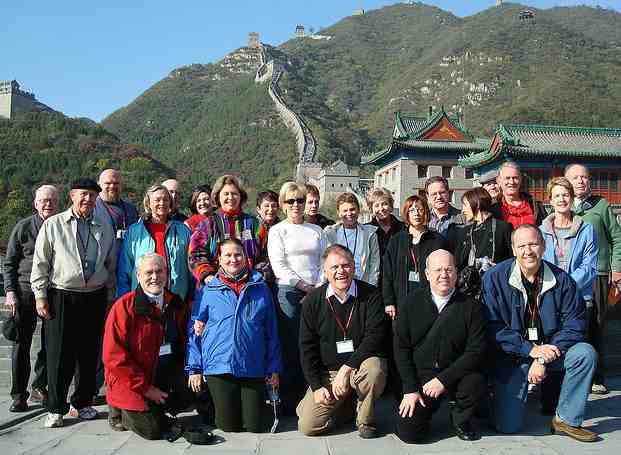
Pros of Tour Groups in China
Let’s begin with a look at the pros of joining a tour group in China. These include:
- They are Hassle-Free: With tour groups in China, you just show up and do what they tell you. You won’t have to figure out how to buy tickets or negotiate with taxi drivers or look for a hotel. It also means that you and your friends won’t have to bicker endlessly about where, when, and how to go to your next destination.
- You’ll Have a Chinese Tour Guide : This tour guide should have specialized information about the sites as well as serve as a translator for your group.
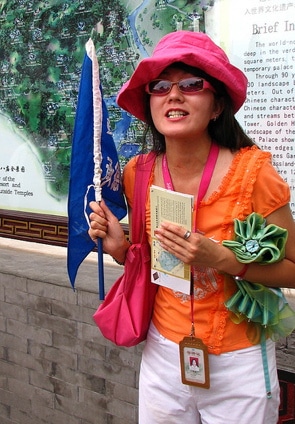
- There is Safety in Numbers : Larger groups feel safer and you’ll even have your tour guide who can help steer you clear of trouble and annoyances.
- New Friends : You’ll have the opportunity to socialize and share experiences with other travelers in your group.
- More Variety of Foods : You’ll be eating Chinese family-style for most meals (shared by entire table) so you’ll be able to sample a wider range of foods that you might not otherwise try.

Cons of Tour Groups in China
As you might imagine, tour groups in China aren’t always the best travel option. Here are some reasons why you might not want to join a group for travel:
- Lack of Flexibility: You might feel as if you’re back in summer camp since someone else will be dictating all the details of your day (such as when to wake up, etc). Do you want to take a detour to check out something interesting? Have a craving for some non-Chinese food for a change? Sorry, the bus is leaving in 10 minutes.
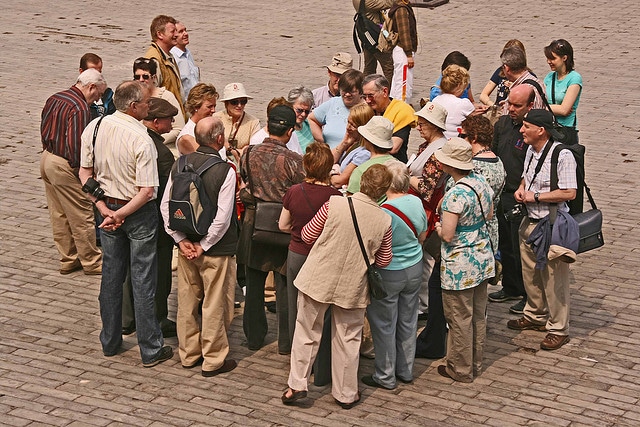
- You’ll Have a More “Watered Down” Travel Experience. Being part of a large tour group — which largely go to the same popular tourist spots — means fewer opportunities to have genuine interactions with locals and appreciate the subtleties of daily life in the back streets.
- You Might Be Stuck With a Bad Tour Guide : If your tour guide is unpleasant (or just annoying), you’re out of luck since you’re stuck with him/her for the rest of your trip. The quality of your tour guide is critical in other respects — some can barely speak English and are not as knowledgeable as they should be so do your homework first.

- You Might Be Stuck with Bad Tour Mates: If other people in your group are unpleasant or annoying, it can be harder to appreciate the majesty of the Li River as you listen to Bubba loudly tell the story of how he once caught a 20 pound catfish with his bare hands….for the fifth time.
- You Might Waste Valuable Time : Some tour groups in China make you visit attractions and pit stops that are thinly disguised tourist-trap gift shops. Since tours typically get some sort of commission or kickback for bringing in a bus load of rich tourists, you might get annoyed at all of the pit stops as well as the mediocre restaurants that cater to tourist groups.
Overall, tour groups in China are a very positive experience for travelers who want that kind of travel. Before you purchase a tour, make sure you check reviews and get detailed information about where you’ll be stopping and what you should expect during the trip.
Independent Travel in China | Pros & Cons
What I’m calling “independent travel” basically means traveling without the services of an organized tour company (either solo or with your own group). The pros & cons are pretty much covered in the above, but to summarize the main points:

Pros of Independent Travel in China
- It Offers Great Flexibility : You can tailor your own itinerary based on your specific interests. And if something else more interesting comes up, you can simply adapt your plan and take a detour. You can wake up whenever you want, take an afternoon nap, or take a chill day watching the world pass by instead of rushing to the next tourist spot. Maybe you really enjoy a place — you’re free to stay a couple of extra days. Or maybe you want to leave at a moment’s notice.
- Get Closer to the “Real China” Although tours will usually have built in certain periods of “free time” (when you’re on your own for a certain time to explore a place), they also often follow the footsteps of countless tour groups (which also attracts hordes of vendors). Traveling solo (or with a small group) makes you more approachable to the locals, opening up opportunities for memorable interactions and experiences.
- Meet Other Travelers (foreign and domestic) who you meet at your hostel or on the road. It’s easy to be insulated in a tour group. Traveling independently in China will present lots of opportunities to meet others (such as sharing a taxi or having a drink). You might end up traveling together with some cool folks for a while. And if you decide you need your space, you can always say buh-bye…

Cons of Independent Travel in China
- Flexibility Cuts Both Ways: If traveling with a larger group or with indecisive friends, you might have difficulty agreeing on where and when to go to the next destination, where to eat, when to wake up, and so on.
- What’s the opposite of “hassle-free”? Oh yeah, it can be a huge hassle . Without a Chinese-speaking guide, you’re on your own to figure out how to get from point A to B and whether the meat from that dumpling that you just ate is pork or baboon ( answer: neither — it’s tofu ).
- If you need help, you’re also on your own . There may be certain times when you’re laid up in your hotel when you wish you had a Chinese-speaking tour guide to tell you where to buy some anti-diarrhea medicine and a fresh pair of underwear.
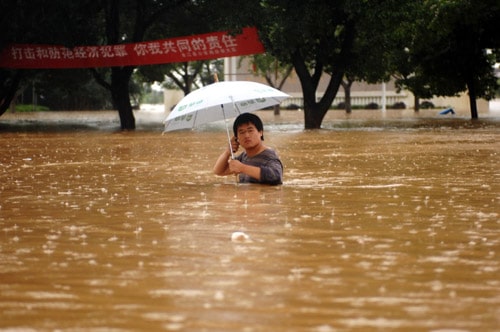
Hybrid Approach to China Travel
An increasingly popular option is what some call the “mini-package tour,” which combines the best aspects of organized group travel and independent travel.
Also arranged through a tour/travel agencies, you rely on them to arrange essential bookings (such as train/airline tickets, accommodation, transportation to and from hotel). In each new city, you’ll even be met at the airport or train station by someone who will take you to your hotel.
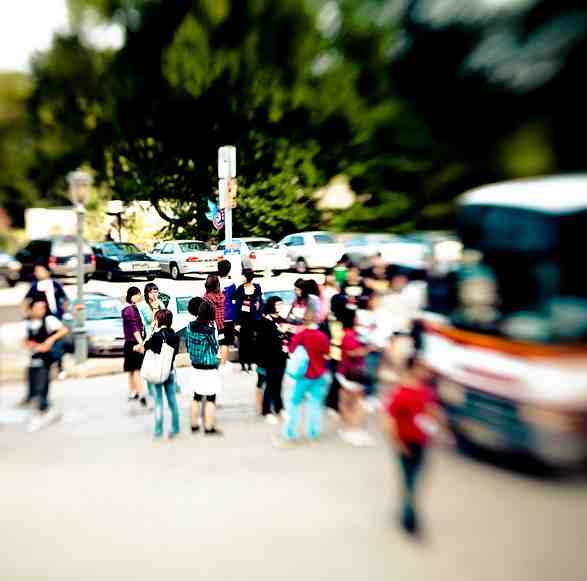
In this way, you’ll avoid the big travel hassles while enjoying the flexibility of exploring a place on your own.
Similarly, another option is to travel independently but join day tours once you’re settled in a new city. For example, even though I personally dislike traveling with a group, it often makes sense to join a tour to see sights outside a city, such as the Terracotta Army outside Xi’an .
Or if you’re traveling in a small group (say 2-4) around China, a good option would be to hire a private driver who can serve as an interpreter and help arrange bookings.
Recommended Tour Operators in China
If you’re looking for some recommended tour operators in China, here’s a helpful list based on my research and conversations with numerous travelers (please feel free to give me feedback):
Full-Package China Tour Operators
Wendy Wu Tours : An excellent option for those traveling from the United Kingdom, Australia, New Zealand, South Africa or Australia.
China Highlights : A reliable tour operator that also offers help with China train tickets and flights.

China Odyssey Tours : Odyssey offers amazing tour packages that cater to specific interests. You’ll want to check out what they have to offer before you do anything else.
If you need something beyond what these tour providers can offer, take a look at CITS, which is China’s state travel agency.

City-Specific Tour Operators in China
For those who don’t want an all-inclusive tour package, you might find these city-specific tour operators in China to be a great fit.
- Beijing : If you’re in Beijing, I recommend checking out Beijing by Foot , a small travel company that specializes in walking tours of Beijing’s major sites. If you love culture and history, what would be better than visiting these amazing places with a China historian as your guide?!
- Shanghai : There are plenty of great tour operators in Shanghai, but my favorite is Jenny’s Shanghai Tours . Jenny’s offers great day tours of the “real” parts of Shanghai with English-speaking guides.
- Chengdu : If you’re traveling to Chengdu, you won’t want to miss the famous Sichuan cuisine. To get a guided taste of the best the region has to offer, check out Chengdu Food Tours . They’ll take you to the restaurants that the locals visit and have you tasting food you didn’t even know to try on the menu.
Luxury China Tour Operators
I know there are a few luxury travelers who prefer to experience the most amazing parts of China with unbelievable comfort. If that’s you, here’s what I recommend:
- Artisans of Leisure
- Audley Travel (UK)
Adventure & Specialized China Tours
Finally, if you’re seeking a specific type of adventure or outdoor experience in China, here are a few China tour operators worth checking out:
- Bike Asia : I’ve biked around different parts of China, and this is definitely an amazing way to experience the country!
- Explore Worldwide (UK): This travel agency arranges specialized boat, rail, trekking and family tours in China.
- National Geographic Expeditions : Wouldn’t it be amazing to travel China with National Geographic?!
- Naturetrek : If you like birding, plant hunting or monkey watching, you might enjoy the offerings of Naturetrek.
Final Thoughts | China Tour vs Independent Travel
Each traveler is different. Whether you decide to join a China tour group or do your own independent travel in China, it’s best to make that decision based on your budget, your personal comfort level and your time constraints.
In the end, I recommend a hybrid approach that gives you the flexibility of independent travel alongside the benefits of day tours. Using the recommended China travel agencies listed above, you should get a good idea of what’s available.
Enjoy your trip to China and stay safe!
Related Posts
- Kowloon Travel & Tourist Maps | China Mike
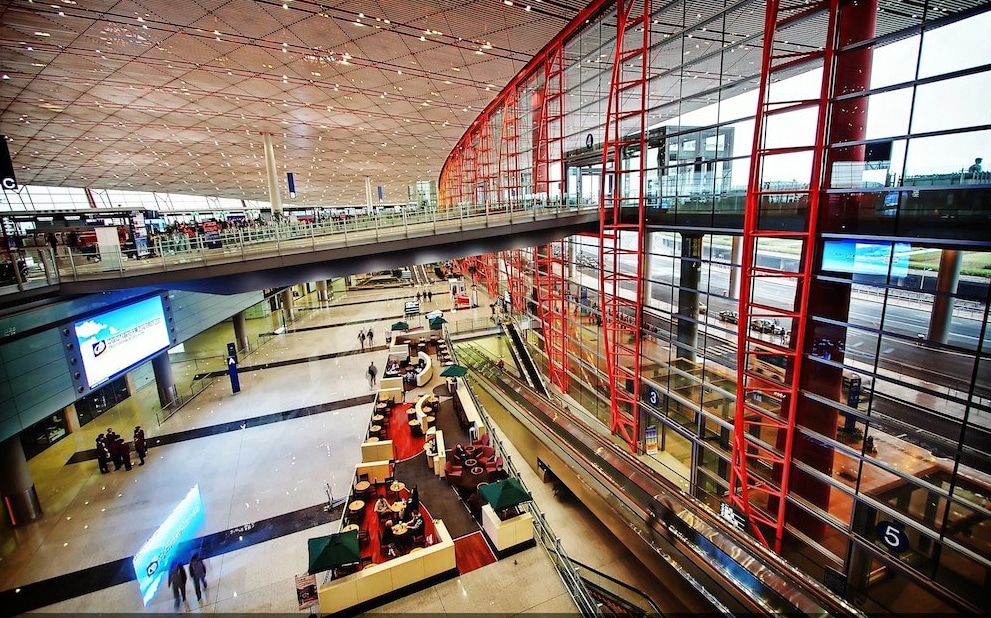
About China Mike
China Mike offers trusted resources about China and its history based on more than a decade of study and personal travel experience. His knowledge and writing on China has been used and referenced by universities, news publications and numerous online blogs.
China Travel Resources
Are you looking for quality China travel resources? Check out this breakdown of my favorite travel tips and resources.

- Australasia
- Central America
- North America
- South America
- Buenos Aires
- Mexico City
- New York City
- Rio de Janeiro
- Overwater bungalows
- Cruise tips
- Sightseeing Passes
- Attractions
- Theme parks
- When to visit where
- Backpacker Indexes
Sign up for our monthly Priceoftravel newsletter
China by tour or plan and go independently? Here’s how to decide
China famously has about 20% of the world’s population, but it hasn’t been a tourist hot-spot for most outsiders. I knew I had to see it for myself so in September of 2017 I painstakingly planned a 14-day visit there. At first I considered doing it on an organized tour because that’s how the vast majority of people visit this huge country, but in the end I decided I should try to do it myself so I’d know how easy or difficult it really was.
It turned out to be more difficult than I had imagined, although certainly not impossible and I very much enjoyed my trip. I’ve now been to just about every major destination in Asia and I was surprised by how different visiting China was compared to the rest. If you are thinking about visiting China you absolutely should. If you are wondering whether to plan it and go on your own or go on an organized tour, I think you’ll find the information below useful in making your decision.
The short version: Most people should do a tour, but there are exceptions
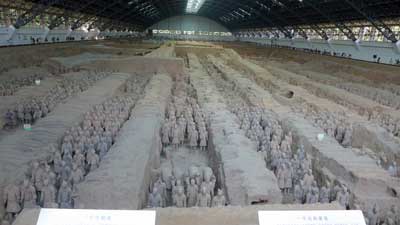
For the reasons I’ll discuss below, China is not like other countries. The short version is that it takes a LOT of research and work beforehand and quite a bit of stress when you are there to see the main highlights. Stranger still, you’ll be surrounded by tour groups once you get to the main sights, whether you are on a tour or not. It’s just that the tour groups had a much easier time of it because all of the complicated arrangements were made for them, and a guide was there to make sure they were in the right places.
Why are you visiting China? This matters most
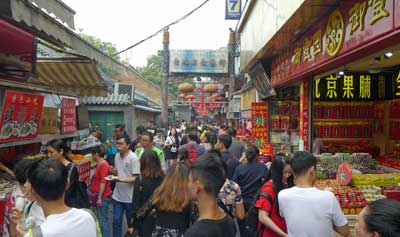
But if you are like the other 99% of us and your main goal is to see China for yourself, and especially visit the Forbidden City, Great Wall, Terracotta Warriors, karst hills along the Li River, and see the skyscapers of Shanghai, it’s MUCH easier to do that on a tour. There are small-group tours with between 8 and 20 people that aren’t much more expensive than the tours with 40 people on them, so you don’t have to be part of a zoo in order to see the best of China on a tour.
English isn't widely spoken, and it's more of an issue than most other places
Perhaps the most shocking thing I encountered on my two-week independent trip to China was how “Western” tourists are basically ignored wherever we go. When I say “Western” I mean almost all tourists from outside of China, as we nearly all speak English as our lingua franca.
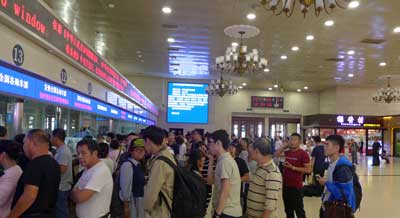
The fact that so many Western visitors are also part of tour groups means that even restaurants and hotels usually don’t have to bother with English menus and signs, because their guide will take care of that for them. As an experienced tourist it’s an unusual feeling to be identified as a Westerner and therefore ignored. So on one hand it’s refreshing, but on the other hand it can be frustrating as if you were deaf and mute.
By the way, the Chinese alphabet is not one of those that can be picked up casually in a week or two before your trip. For most people, it’s just random-looking box patterns that all look quite alike.
Independent travelers and tour groups end up in the same places anyway
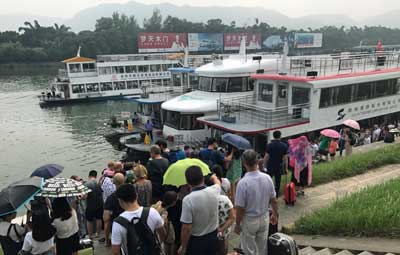
Again, one of the main issues is that even China’s tourist cities are mostly impenetrable to those who don’t speak the language. If you learn about some small and obscure museum or cafe, chances are very high that English will be of no use to you when you eventually find it.
Tours can actually be cheaper for the same things
When considering a tour or going on your own it’s also important to factor in the prices of each. In almost anywhere else in the world, going independently is cheaper for the same things, as long as you plan well. But amazingly enough, China tours can be much cheaper than going on your own, although it’s still important to compare for yourself.
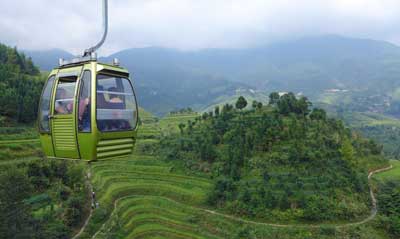
Tours to China will usually include most hotel breakfasts and some lunches and dinners. Where these are included, you’ll usually get buffet or family-style service where each person helps themselves from big plates and bowls. This is also very common among Chinese tourists, and it’s cheaper per person than ordering a la carte from restaurants you find yourself.
China independently takes a LOT of research and some stress
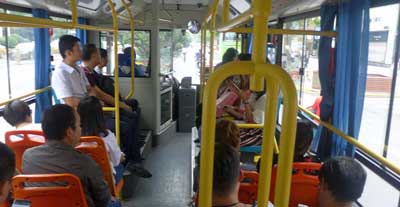
Once you have your visa sorted out, you have to figure out which cities in China you want to visit. It would be crazy to go to all that trouble and the long flight and then only visit Beijing, so the most popular visits are Beijing and Shanghai or Beijing, Shanghai, and Xi’an. If you have more time you’ll probably want to add in Guilin (all of these are covered below), or a Yangtze River cruise, and some tours also include Hong Kong and Taipei, even though they aren’t technically in the same China.
You could read the China Lonely Planet from cover to cover, and if you only have three weeks or less you’ll probably end up doing one of the itineraries mentioned above in the end. If you check the popular itineraries from the main China tour companies, you’ll see all of those exact same itineries. Many of them will move faster than you’d prefer (2 days in each city), but you can actually see a lot in a short time if you’ve got a bus waiting for you at every stop.
If you are NOT on a tour you’ll be on your own to figure out how the metro systems and local bus networks work for tickets and transfers. They are mostly straightforward, but this can be fairly stressful since you will likely be the only non-Chinese speaker there at the time.
Public transportation can be tricky, and taxis can be even more difficult. Uber is banned in China (as of this writing) and public taxis won’t stop for you under most circumstances. They (justifyably) know from experience that if they stop for a non-Chinese person, chances are very high that they won’t be able to understand you and it will waste a lot of their time.
The good news is that a Chinese app similar to Uber called Didi Dache bought Uber’s China operations in 2016, and in 2017 they launched an English-language version of the app. I’m told that English-language customers can input their destination in English and it automatically gets translated for the driver. I didn’t try it myself, but an expat friend of mine in Beijing said it works well.
How to prepare for your China trip
Sort our a visa.
As mentioned above, the procedures for a China visa are more expensive and more complicated than virtually any other tourist-friendly country in the world. There are agencies that can help you and are probably a wise investment. I used one that has offices near each consulate in the US, and they were very helpful when the Chinese consulate first rejected my application and asked me to include another form. This service added another US$150 or so to the price, including Fedexing my actual passport back and forth.
Decide where you want to go and how you’ll get there
When you apply for a visa they will ask to see your inbound and outbound flight confirmation, as well as your hotel reservations in China. For the most part you need to have these locked in before you even get approved for the visa, although I’ve heard of backpacker types being allowed in and wandering around for a couple months.
Sign up for and download a VPN app for your mobile devices and laptop
You may have heard of the so-called Great Firewall of China, which blocks residents from access to Google, Facebook, Twitter, and many other services that you might use on a regular basis. If you want to be able to use any of these you’ll need to get a VPN (virtual private network) app on your smart phone, tablet, and lap top if you bring them.
It’s obvious that the Chinese government is aware that many tourists use VPNs during their visits, and they usually look the other way. Evidently the goverment sometimes shuts down the VPNs in the run-up to official meetings and events, but it seems that most of the time a VPN will work fine. Their goal appears to be to keep the citizens from being able to readily access outside services that might suddenly turn against the official news of the Chinese government.
After a fair amount of research I chose ExpressVPN, which seems to be the most popular service and worked on all of my devices. It’s not cheap, but it’s much better and more reliable than other VPN services I’ve used before.
A brief summary of the major China highlights
China is obviously a huge country, but most of it is of little interest to first-time visitors. The language barrier also makes it very difficult to just roll into a random city and get by as a non-Chinese speaker. Below are the most popular destinations for first-time visitors to China.
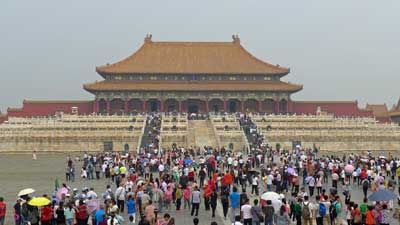
The Beijing air quality is famously bad (although evidently getting better), and it’s actually among the more challenging cities to visit. If you book into a hotel with an English-language version of their website, chances are strong that at least the front desk people and the concierge will speak enough English to help you out. But even in Beijing, English is not widely spoken by most people in the hospitality industry or most restaurants.
It’s also worth mentioning that Beijing is mostly a low-rise city and it’s very spread out. As a result it’s not as walking-friendly as the other cities below. The metro system is cheap and fairly easy to use, with all signs in English, but since the city is so spread out it might mean that the restaurant or shop that you want to visit is still a 15 minute walk from the nearest metro stop.
>>> Beijing prices, weather, and travel tips
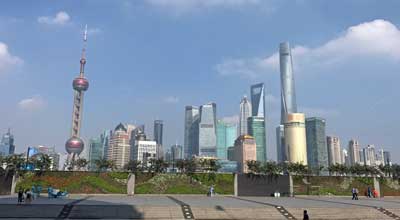
Another major difference between Beijing and Shanghai is that Shanghai has a wide river at its core, with the riverfront Bund neighborhood on one side and the futuristic skyscrapers and shopping malls on the other side. Shanghai is also much more vertical than Beijing and it’s much more of a walking city. It does have its own modern and easy to use Metro system, as well as reasonably priced taxis.
I spent 4 days in Beijing and 4 days in Shanghai and even though Beijing has its classic sights that I enjoyed, I had a much better time in Shanghai and if I had to live in China for some reason there is no question that I’d choose it over all the others.
>>> Shanghai prices, weather, and travel tips
Xi’an
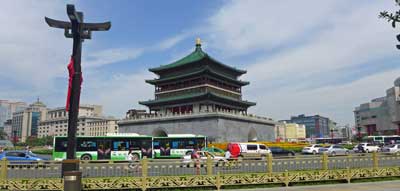
The area around the Bell Tower in the center of the walled city is fairly tourist friendly, but the city itself isn’t as charming as you might expect. Most people seem to come here primarily to visit the Terracotta Warriors, which are about an hour outside the center by bus or taxi. The story of the Warriors is among the most amazing archeological finds in the world and I’m a big fan of it. But to be honest, visiting the huge complex where the dig continues felt somewhat dull to me. For hardcore travelers seeing the Warriors is a major bucket list item, but if it doesn’t mean that much to you I would probably skip Xi’an.
The surprising highlight of Xi’an for me was the Muslim Quarter neighborhood, which is like an ongoing outdoor food festival with excellent snacks and street food meals. The nearby Bell Tower and Drum Tower are worth a look, even if they are very similar to each other.
>>> Xi’an prices, weather, and travel tips
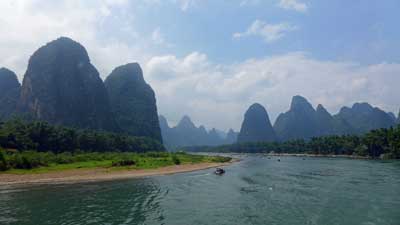
All of that said, Guilin itself actually has many similar karst hills in the middle of the city and it’s one of the most scenic places I’ve ever visited. It’s extremely popular among domestic Chinese tourists, but also popular enough among non-Chinese that getting by in English isn’t as difficult as in Beijing or Xi’an. Another big tourist attraction is a huge set of rice terraces in some nearby mountains, and they are also some of the most amazing things I’ve ever seen in person.
If someone was planning a visit to Beijing and Shanghai and wanted to add in one other stop, I’d suggest Guilin by far over Xi’an. It’s a large and busy city, but the tourist district between the four lakes and the central square is very friendly and nice. Xi’an is a huge (and not charming city), while Guilin is unique in all the world. Hotel prices here are also very modest considering the quality. We include Guilin on our list of the best unusual holiday destinations around the world .
>>> Guilin prices, weather, and travel tips
A few other places that are often bundled into China tours
Each of the places listed below can be reached without a special China visa, but most China visas are issued with two entries so that visitors can exit to one of these places and then come back into China on the same trip if they like.
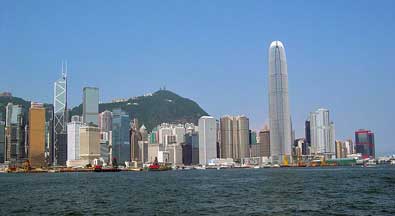
Since Hong Kong was run by the British until 1996 it’s no surprise that English is pretty common here, and especially at hotels and most restaurants. The food is excellent, as long as you like Asian cuisines in general. If you are thinking about adding Hong Kong to a China trip and you don’t think you’ll have a chance to visit otherwise, I would highly recommend it.
>>> Hong Kong prices, weather, and travel tips
This former Portuguese colony is a one-hour ferry ride from Hong Kong and now it’s known as by far the biggest gambling destination on the planet. Most of the city is older and similar to older areas in Hong Kong, while another area resembles a much smaller version of the Las Vegas Strip, with a cluster of huge hotel-casinos and wide streets.
Non-Chinese people who are looking for Las Vegas-style fun won’t find it here. There is very little drinking in the casinos and there are very few shows. The main attraction is the giant casinos themselves, and almost everyone inside is playing baccarat exclusively. Overall I don’t think it’s very interesting for most non-Chinese.
>>> Macau prices, weather, and travel tips
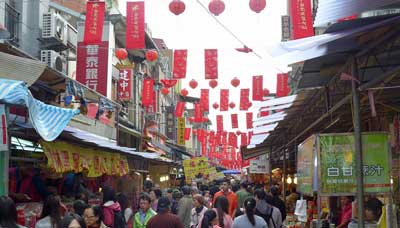
This is another city that foodies gush about, and I found plenty of reasons why on my own visit. The huge and famous museum here actually holds many of China’s most important antiquities, so it’s a good place to supplement your Chinese history knowledge.
Overall it’s hard to recommend Taipei unless you already have a specific reason to come. English isn’t widely spoken and it’s quite a bit like China’s big cities in that those who don’t speak Chinese will find very limited choices when it comes to restaurants and other cultural offerings.
>>> Taipei prices, weather, and travel tips
OTHER POPULAR POSTS
Leave a reply cancel reply.
Your email address will not be published. Required fields are marked *
China by tour or plan and go independently? Here’s how to decide " --> All Comments
My wife and I are goinng to China in April 2020 and will join a group tour. We are considering an 11 day tour to include Beijing, Xian, Guilin Yangshuo and Shanghai. We have come down to 2 companies, ONTHEGOTOURS and TRAVEL CHINA GUIDE and would like to know if these are reputable companies
That sounds like a great trip and I think booking a tour is wise. To be honest, I’d never heard of either of those tour companies, but that’s mostly because I focus on independent travel. I just checked them both out and they both look legit, with plenty of reviews and outside references. I think I’d be comfortable booking with either of them, although there are no guarantees that something won’t go wrong even if you book with the most famous tour company.
Another reason I’d feel confident enough is that tours in China are a huge business and most things seem to operate quite efficiently. The trains and planes are nice and generally go on schedule. If you were going to India, for example, there is much more room for things to go wrong because sometimes the trains are very late and there are plenty of sub-standard hotels and all that. You might look for other opinions, but at least at first glance they look really solid. Best of luck on this. -Roger
16/06/2019 Hi Roger Many thanks for this very informative and easy to read blog. My friend and I are Australian, fit, young minded, mature aged ladies and we did briefly think that we could negotiate China independently. We planned and researched our amazing visit to India albeit mainly Rajasthan without a hiccup. However as you rightly pointed out visitors to India are welcomed with open arms!! Thankyou for giving us your honest well considered thoughts and ideas about China and organised tours v’s independent travel. We will now be visiting on an organised tour preferably in a small group! “Follow the red umbrella” here we come!!
I’m glad I was able to help. As I mention in the article, I’d recommend independent travel to almost any other country, including India. It’s just that China is unique in that English-speaking tourism is such a tiny fraction of their market that they really don’t go out of their way to make it easy. In every other country the English-speaking tourists dominate so they really have to cater to us. Have a great trip. -Roger
China is my dream trip. My primary purpose would be to see one (or more) of the Giant Panda research centers. Maybe even do the volunteer day that they offer. I would want to see a few other sites as well, so travel within the country would be necessary. Except for Canada, which I can get to in 30 minutes from my home in Michigan, my husband and I have never been out of the country. Would you consider China too complicated as a first overseas trip? Should we start with a more tourist friendly locale to get our feet wet? My husband doesn’t have the over powering wanderlust that I do, so I don’t want a bad experience to prevent more travel in the future, but we also have to scrimp and save to be able to do any trip at all, so out of the country travel would have to be few and far between. Thank you! I know from your article that I would definitely prefer a tour over trying to muddle through it alone.
I’m glad the article was helpful. I actually do think that doing China on your own could be a frustrating experience for the reasons mentioned in the article. Almost no one speaks English, except for a bit of English by some merchants that get foreign customers at times. But as mentioned in the article, the tours are quite cheap and they offer very good value so I think that could be ideal for you.
And as someone who literally does this for a living and spent dozens and dozens of hours researching and planning my own trip, I just don’t think there is enough of a payoff to go through that and then end up visiting the same places as the tour groups anyway. I travel internationally a lot, of course, and China was one of the most challenging countries to visit on my own. Hong Kong is quite a bit easier by the way. It’s not that China is or feels dangerous, it’s more that it’s just confusing and there aren’t many people around to help you if you don’t speak Chinese. Let me know if you have any other questions. -Roger
I’m in a situation in which my mother and brother, and my husband and I, are split on whether or not to do a tour. The thing is, my mother is from Taiwan and fluent in Mandarin, and I am semi-fluent. None of us have been to China before, but the purpose would not only be to sightsee but also meet my mother’s extended family in Shanghai and Beijing and visit my late father’s ancestral hometown outside of Hangzhou. My mother and brother think that it’d be possible to do these side visits while with a touring group, but my husband and I have our doubts. Also, as a Chinese-American, I hope to have a more “authentic” experience than what I imagine one would have on a tour. Can you advise what you would recommend for our purposes of the trip? My brother, husband, and I feel pretty confident in our ability to plan the trip on oir own, but my mother has what seems like an outdated view of China that it is a very unsafe place for foreigners to travel. Many thanks, Kathy
I agree with you and your husband on this. As I discuss in the article, China really seems impenetrable for those of us who don’t speak the language, but I’m pretty sure that it will be fairly easy for someone who does. As you can imagine, the written language is impossible for someone like me to learn for a short trip, so I was helpless to use my own maps and translations. The reason I recommend a tour to most people who don’t speak the language is that there just isn’t much more you can do on your own anyway. For example, if I went to a remote neighborhood in Beijing and saw some interesting shops, I would be helpless to do anything other than look around a bit, because they wouldn’t speak a word of English.
But since you and your mother should have a fairly easy time communicating at least the basics, it will open up almost everything there for you. China is very well organized and I found that getting around was easy once I found the information in English or was able to speak to someone at my hotel who knew some English. Those package tours are often cheaper than doing things on your own, as I mention in the article, but if I could speak the language I would gladly pay a bit more.
From what I’ve heard and read, China does have its problems with petty crime, just like every other country in the world. But the interesting thing about traveling there as a foreigner (and a big, white guy in particular) is that I felt like almost everyone there ignored me because they knew we couldn’t communicate. In almost every other Asian country an English-speaking tourist will meet all sorts of scammers and people trying to sell you something because English speaking tourists generally have much more money than locals. But in China, it’s the domestic Chinese tourists who have most of the tourism money, so they almost certainly have more problems than foreigners. As people of Chinese decent you might get hassled a bit, but I really didn’t see anything to fear at all. From everything I’ve heard from people who have been going to China for 20 years or more, the country has changed massively every few years. Right now it feels very modern and safe and well organized. So I would say plan it and go on your own. I’ll be happy to help if I can. -Roger
We have always traveled independently, but, after reading your article, are considering going on a tour to China. Do you have a tour agency you would recommend? Thank you, John
As I discuss in the article, I think a tour of China is wise, as long as you make sure to find one that fits your style. I’ve heard good things about China Spree and especially their prices compared to what you get. I believe that the cheaper tours will have 40 or so people on them so they can fill a whole bus, and “small-group” tours with 8 to 20 people cost a bit more. Personally I would prefer a small-group tour because those full-bus tours always take much longer for people to get on and off each time, and you can only go as fast as the slowest person on the tour. Also, be aware that some tours include more mandatory shopping stops than others. I did day tours once I got to China and many of those also included the mandatory shopping stops, so it seems that they are almost impossible to avoid even if you travel independently. I’m happy to give more advice if you have any other questions. China is an amazing place. -Roger

All Destinations , Asia , China
The ultimate solo travel in china guide.

China is many things. Crazy, overwhelming and unique are all words that could be used to describe this Asian country. Solo travel in China can seem pretty daunting – it’s often near impossible to know exactly what is going on while exploring the country, especially if you have little grasp of the language.
If you’re thinking about solo travel in China, you may have some concerns for your safety in this enigmatic country. Rest assured – one thing that China isn’t is dangerous. Actually, throughout all of the times I have been in this country (four now!), I have never felt my safety questioned or threatened once.
Considering that I travelled some tremendous distances (including a 44 hour train journey!) and have spent most of my time alone in the country, this is an enormous credit to the safety of the country.
There isn’t really that much difference between travelling as a solo male or female in China; the crime rate is so low that women just aren’t threatened, and there is less of a ‘chauvanistic’ culture than there is in the UK. I have never been harassed or catcalled in China; and sadly this still happens weekly back home in London.
So, if you want to solo travel in China, don’t worry – you’re going to be perfectly safe. The local people are some of the kindest I’ve ever met, and I always felt watched over and looked after by whoever was around me. Travelling in China is safe.
BUT, safe doesn’t always mean easy. And China is not easy. But it is so worth it.
What Makes China Such a Challenging Place to Travel?
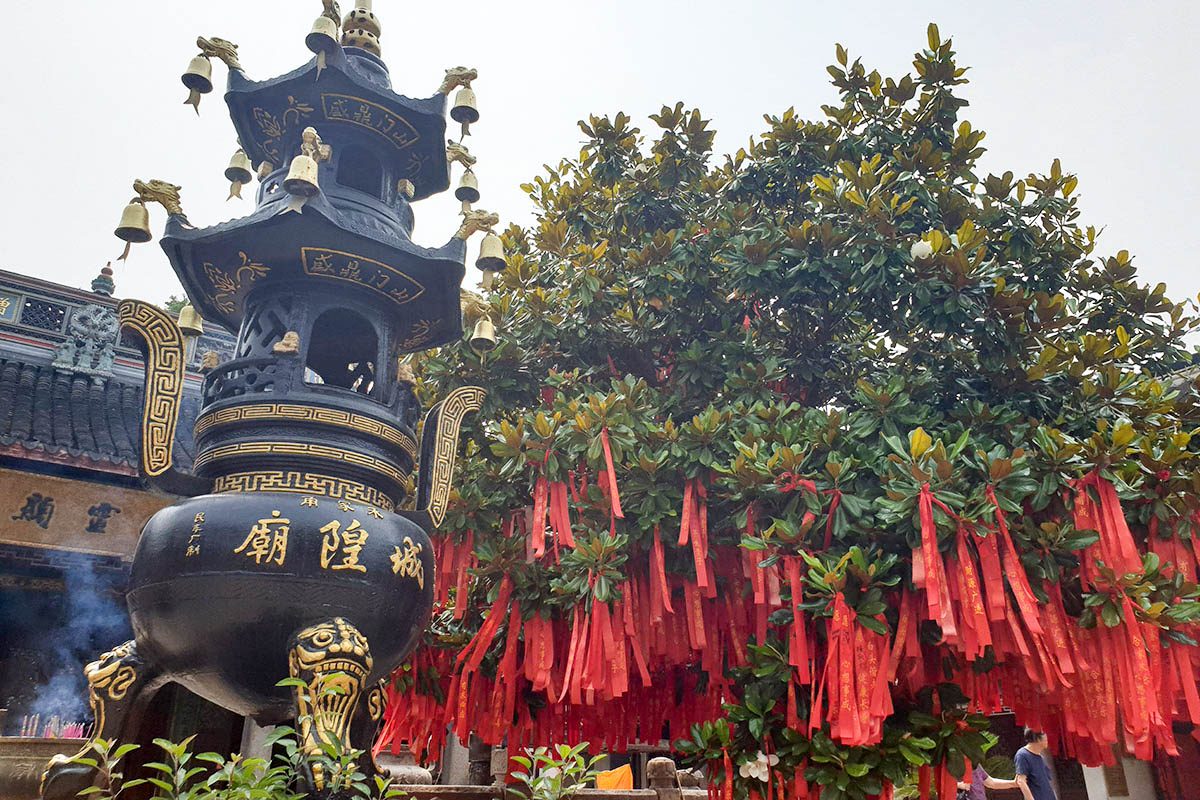
So, if China is so safe, why is it such a difficult travellers’ destination, and why is it still relatively unexplored by backpackers? There’s a few reasons why so few backpackers venture to China on their Asia trips.
The Language
The language barrier is there, and it’s intense. Chinese couldn’t be further from European languages and the way that it is written makes it an incredibly complex one to master. While it’s entirely possible to learn Chinese if you’ve got a spare few years, being able to converse after one China trip might be difficult.
I picked up some basics (including the very useful phrase ‘this is my foot’, a great starter to any conversation), but anything beyond asking how much something was (and probably not understanding the answer) and asking for aubergine without meat in a restaurant was kind of beyond me.
English is Not Commonly Spoken
In other Asian countries, a language that’s hard to grasp isn’t necessarily a problem because lots of locals speak English. One of my biggest pet peeves is when English-speaking people go abroad and just expect everybody to speak Englishh, so I didn’t mind nobody speaking my language at all, but it definitely made travelling very challenging at times.
In the larger cities, some younger people have a good grasp of English and most of them are very keen to practice with tourists, but you really can’t rely on it anywhere in China (until you get to Hong Kong that is, where English is everywhere!). Travelling in China gives you an appreciation for hand gestures and body movements that you never thought you’d need!
The Road Signs Could be a Little More Informative
Signs in China can be a tad baffling. Whether you find yourself confused at a station, where the signs are so sparse you could end up being fast-tracked to the Russian border, or be left wondering (or trying not to wonder) what the miscellaneous in ‘Sheep Casserole Miscellaneous’, chances are at some point you’ll be completely baffled by a Chinese sign.
Westerners are Stared at A LOT
Be prepared to be a local celebrity! In China, Western travellers are so uncommon that they are subject to constant staring and photo requests.
It gets a little bit tedious after a while, but it’s important to remember that the staring isn’t considered rude in their culture – they’re actually staring because they’re fascinated with Westerners – and as we’re in their country we should be respecting their cultures. Full stop.
The Food is Amazing… And Awful… At The Same Time
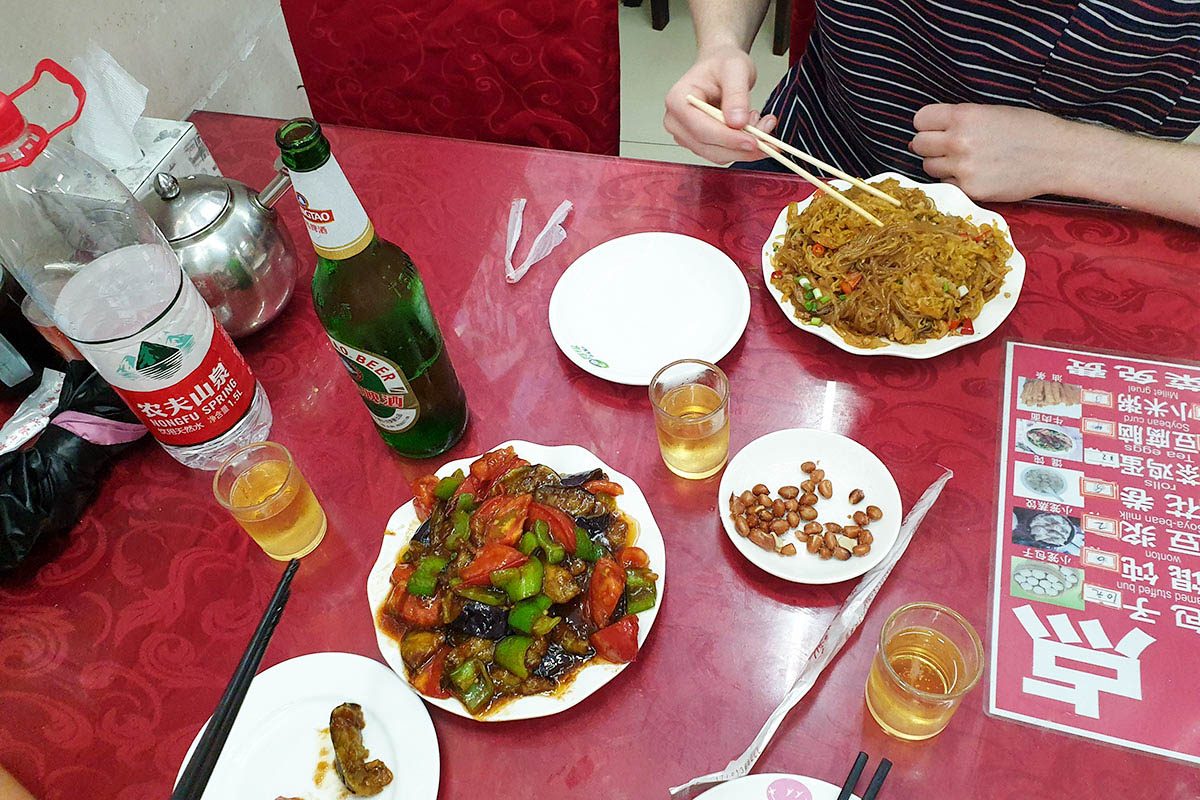
Being vegetarian in China is an interesting experience. Meat is everywhere; for breakfast lunch and dinner, all over market places, on the side of the road at service stations…. If you’re a strict vegetarian, you’ll struggle in China.
I had to desensitize myself to a lot of what surrounded me and remind myself that I was there to respect the culture, and this culture does view meat completely differently to the Western world.
Even if you’re a meat fan, you might find some of the specialities a little stomach turning – we’re talking cow stomach or pig liver, or the occasional white rubbery organ-shaped delicacy which doesn’t quite have a decipherable name…
But China’s not a complete hell for vegetarians. The Chinese actually love tofu, which can be found in many Chinese restaurants. And their veggie dishes are often AMAZING.
Aubergine fried in garlic, cauliflower in a spicy sauce and huge bowls of thick noodles were my favourites when I was out there. The food just took a bit of adjusting to – another rung to the complicated ladder of backpacking in China.
The Distances Are Large
Unless you want to take internal flights (which I wouldn’t recommend – the trains are an experience and are much more environmentally friendly ), you’re going to be covering some serious ground in China.
My longest train ride was 44 hours – while I always had a bed and enough space to get up and walk around, I can’t say that they were exactly comfortable, and sometimes just standing outside the toilets was enough to turn my stomach!
That being said, I have also taken some new trains, like the amazing bullet trains that connect different cities, and the ultra-modern slow train between Shanghai and Beijing. These trains are absolutely fab.
They were all part of the experience of travelling in the country and I do believe that travelling by train through China was one of the best things that I’ve ever done .
The Culture is Completely Unique
The culture of China, which developed independently of outside influence for thousands of years, is the polar opposite of everything that I’ve ever experienced before.
There’s 1,300,000,000 people in China and the way that they are doing things may well make a great deal more sense than the Western way of doing things. But it’s different for Western tourists, and takes some adjusting to.
Why Should I Solo Travel in China?
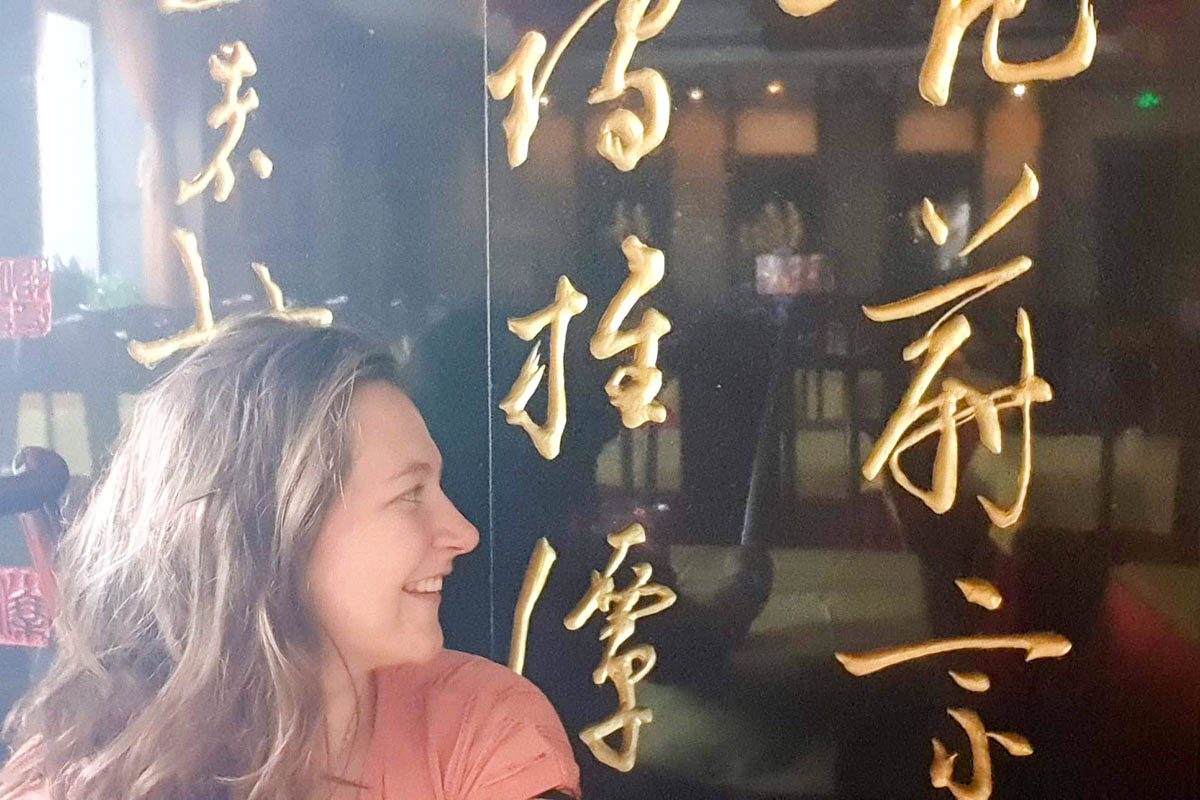
All of this shouldn’t scare you! Despite China being confusing as heck and the opposite of user friendly, there’s so many reasons why you should still explore this country on your own, ESPECIALLY if you’re on your own!
Why is that? You may ask. I’ll tell ya…
- Travelling in China is a humbling experience. You realise how large the world is and how many different ways there are to do things other than your own.
- China boasts incredible nature and scenery (like Jiuzhaigou and Zhangjiajie) as well as the most jam packed manic cities, which are equal parts frustrating and completely awesome. You can check out the 20 best places to visit in China here .
- There’s a distinct sense of pride you can achieve by conquering certain countries, and China definitely is one of them. And solo travel in China makes that experience all yours.
Tips and Tricks for Solo Travel in China
Due to China being a really safe place, solo travelling in China as a girl or guy doesn’t make much difference. Obviously use common sense – if somewhere seems dodgy don’t go there, and if a situation is uncomfortable get out of it.
Common sense is enough to keep you safe in China – even though I quite often have no idea what’s going on there, I never feel my safety questioned in China.
But safe doesn’t always mean easy. And solo travel in China is not easy. But there are some ways to travel through China without feeling like the world is upside down!
Here’s how to travel solo in China and absolutely boss it.
Make a Cheat Sheet
As soon as you land in China and arrive at your accommodation, get someone there to make you a cheat sheet. Generally, you’ll find someone at your hostel or hotel who can speak good English (hostels generally have younger people employed and many speak excellent English, or you may also find Chinese guests who can speak good English).
Write down some basic words in English – certain foods that you like ordering or places around the city you might want to visit are a good start – and ask your helper to translate these into Mandarin Chinese characters.
Your cheat sheet will become your best friend. Make it pretty, keep it safe and add to it!
If you want to have a cheat sheet organised before you get to China, contact me on Instagram – I can offer a translation service of basic words and phrases written by a Chinese native for a good price.
Try to Learn Some Chinese

Yes, Mandarin Chinese is hard, and some of the words are accented so simliarily that it can often seem that you’re trying to say something completely different to what you mean. But this doesn’t mean that you can’t learn a little bit! People can and do learn Chinese when in travelling in China. It is a language that will take you a while to master, but if you’re travelling in the country for over a month, the bare basics can easily be grasped.
By the time I left China on my first seven-week trip, I could ask how much items were in a shop, I could occasionally understand the price of said items, I could ask for aubergine, rice and watermelon and I could say make me a cup of tea.
While my culinary options were somewhat limited by this, it was good to know that if I became completely stuck without my cheat sheet, I could at least make a simple transaction and get some food. (By the way, the Chinese cook aubergine in such a delicious way that I was more than happy that it was nearly all I asked for. I ate it most days for three months and I have no regrets. Hence the copious mention of aubergines in this post. Just keepin it real).
Before I visited China I learned the incredibly useful phrase ‘this is my foot’ and the words for ‘zebra’ and ‘hippopotamus’. The opportunity for these didn’t arise too much when navigating China, but honestly, you really can learn a bit of Mandarin with some effort. It also looks super impressive when you travel to other places!
Completely Open Your Mind
Lots of things in China are completely different to the way that they may be in Western societies. Embrace this and love the change – there’s over a billion Chinese people and you know what? What they’re doing might actually make more sense than what we’ve been fed our whole life.
Revel in the culture, even if it confuses the heck out of you. Enjoy queueing – nobody queues like the Chinese after all. Smile and wave to the people staring – and remember that they’re only staring because they’re fascinated because it’s so rare that they see Westerners. Let kids have their picture taken with you!
Make Yourself Known (very loudly) to EVERYONE
This strategy will definitely land you in the idiot abroad category, but you have to be one of the world’s savviest travellers to not be lumped in this category whilst travelling in China in the first place.
I developed the tactic of boarding a train, giving every staff member a big and cheerful ‘Nihao!’ (hello) and pointing at the name of my destination on my ticket, with an I HAVE NO IDEA WHAT’S GOING ON look in my eyes. The staff always got the message and made sure that I was alerted before my train stopped at its destination.
Make Use of some Fantastic Apps
I wasn’t the best at doing this but there are some great mobile apps that you can use while attempting to navigate China – many of which I was made aware of – and wished I used more of! – after I left the country.
Make sure you have a decent smartphone on your China packing list – it will make getting around the country much easier.
- Maps ME lets you download detailed maps of your local area which you can browse at your leisure.
- Google translate has a fantastic voice function that can translate what you need to say into Chinese and Chinese speech into English.
- DiDi is the Chinese Uber.
These will really help you explore China with very few hiccups. If you have an Android phone, download these before you enter the country, as Google Store is blocked in China.
Always Have a Map of the Local Area and Your Accommodation Address Written Down in Chinese
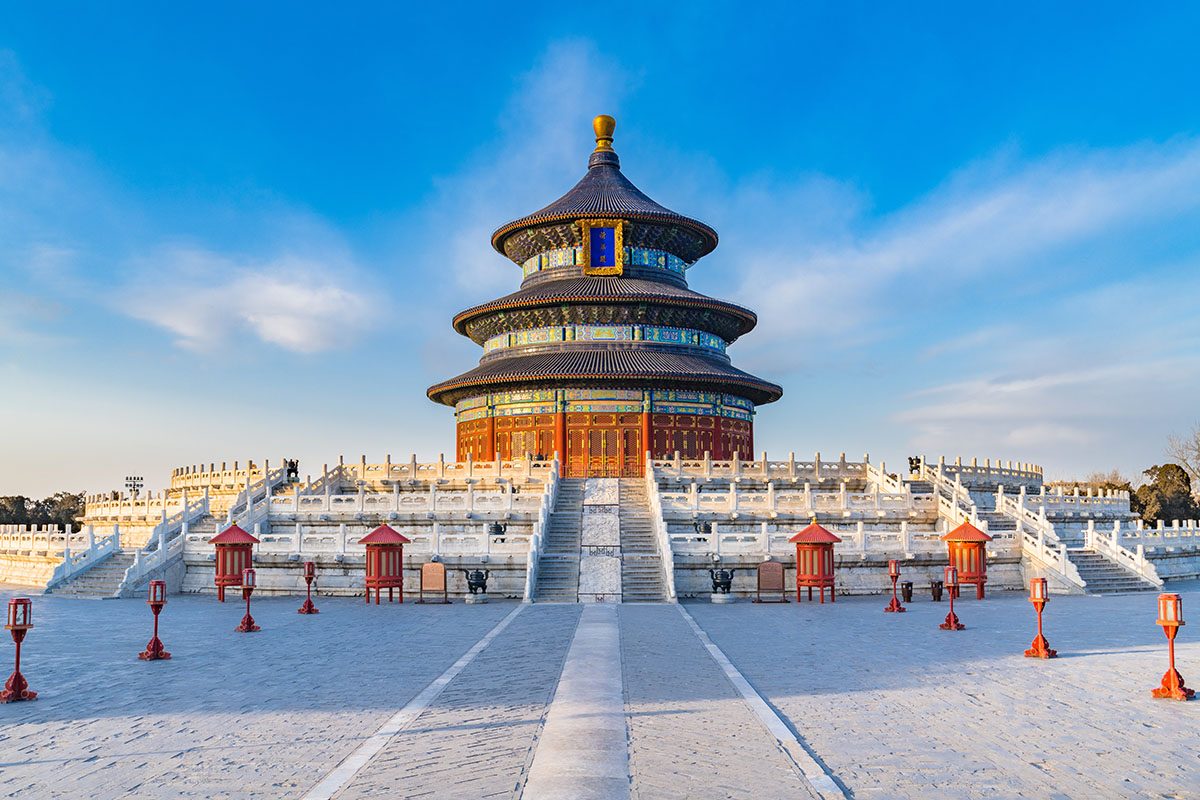
These are two of the most valuable things that you will keep in China. Mobile apps are great, but you never know when a phone will break, run out of battery or get lost (in my case, A LOT). Oh, also, remember your power bank when travelling in China or anywhere in the world.
If you keep these two things on your person whenever possible, it will be pretty impossible to be completely lost.
Get in the habit of getting these sorted as soon as you get to a new place, or even before – they’re perfect to show taxi drivers at a station!
Relax, Know that Everything Will be ok and Enjoy the Crazy Rollercoaster that is Travelling in China
As I said before, China is safe . You’re more secure walking the streets of Beijing than Berlin, and I’d feel so much more at ease rocking up to Shanghai train station at 3am than walking the streets of South East London. You won’t come to any harm in China .
You’re going to be confused, you’re going to slip up a few (hundred, maybe) times, and you may even end up lost somewhere in Inner Mongolia when you meant to get off the train in Xi’an (edit: the latter never happened, I made sure of that through careful practice of making everyone aware of my presence at all times while on trains).
Your China travelling experience will be bonkers and ridiculous and fascinating and amazing. It will all come together to be a perfect yet flawed trip. You’ll wonder how it’s possible to feel so much frustration and amazement at the same time, and laugh at how bizarre it is to revel so much in bewilderment. Just open your heart and mind and enjoy the ride. You’ll have a blast.
5 thoughts on “ The Ultimate Solo Travel in China Guide ”
This was such a great text of info!! Now it really makes me wanna go!! I’m a 62 years old lady with white hair and when i travelled solo to Thailand , Vietnam and Bali this year , i absolutely Loved it!! Go when i want to go and where i want to go! Loved it!! I never dined alone! But there was no language barrier so when i go to China, i will definitely depend on my phone translator and carry a big battery with me. This is very exciting.!! I going to a wedding in Hong Kong in January and will more then likely continue to China. Which city and places do you highly suggest? And I’m gonna do cheap hotel accommodation. Hows the youth hostels in china? Is it fairly unexpensing to visit China? Have you been sick from food poisoning? I know that can happen anywhere but in all my travel i haven’t been sick anywhere and i ate everywhere i felt like. Hows the trains accommodations? I normally travel by plane to save time since it was so cheap in Asia. Thank you very much for all the great tips.
Hi Odette, amazing! I’m sorry for the late response, but I’ll answer your questions now and hope that you see them. You sound like such an adventurer, I hope I’m the same at age 62!
Definitely take your phone translator, Google translate is a life saver! Younger people in the cities do speak some English – some very good – but in the countryside and older people won’t speak it.
For a first time, I’d definitely recommend checking out my first time China itinerary. If you type into Google China itinerary Claire’s Footsteps it will come up. Those are all of the places that I think are essential to get a real feel for China just by one trip. There are some hostel recommendations too. Hostels in China are great! Most are really clean and high standard and serve food and drinks. Wifi not great but that’s to be expected and talking to people is much more fun. I’ve met so many interesting people in Chinese hostels, both locals and other travellers.
Yes, it’s very cheap, especially if you stay in hostels and eat at local places. I didn’t get sick in China – although I don’t eat meat which may help! I have got sick a few times in Latin America though so I know I’m not immune!
I would recommend taking a sleeper train once as they’re quite an experience! I’ve never actually flown internally in China (trains are cheaper and I’ve always found it a good way to save money on a night’s accommodation when booking the right one) but I’ve used Chinese airlines when flying internationally and have always found them to be very good.
I hope that helps! Do come back and let me know how your trip goes, I’d love to hear about it!
Hi Claire, I was just wondering what your experience of hostels out there was? Was it easy to meet other backpackers along the way. I’m interested in going to south west China but wondering hat it will be like out there? Katie
Thanks so much for this!! I’m going to Xiamen for four months on exchange then will be backpacking across China for two months. This post is so helpful and has got me so excited!! Just discovered your website and I’ll defs be coming back to it <3
Thanks Holly, so glad it’s helped your trip planning!
Comments are closed.
- New Zealand
- The Philippines
- The Netherlands
- United Kingdom
- Inspiration
- Overland Itineraries
- Packing Lists
- Travel Tips
- Working Abroad
- Accomodation Guides
- Overland Travel
- Preserving Cultures
- Protecting Animals
- Living Abroad
Solo Traveler
Solo travel tips, destinations, stories... the source for those who travel alone.
Solo Travel to China: 32 Tips You Need to Know
April 11, 2018 by Janice Waugh

Westerners, in China, are known as “Big Noses.”
Doesn't sound too flattering does it?
But learning this does put one in one's place. We are the outsiders. We are the guests. And we should learn how to behave.
Hopefully the tips below, which were gathered with the help of my fellow travelers, will help you navigate and negotiate China with grace as well as greater ease.
I say my fellow travelers because I was in China for three weeks as the guest of Overseas Adventure Travel (OAT). And though we had the benefit of an expert resident in each city and a local trip leader, we still noticed many things ourselves about traveling China that would be helpful to know before arriving. So, at one dinner, I got everyone brainstorming for this post. Here are the results plus a little research from me.
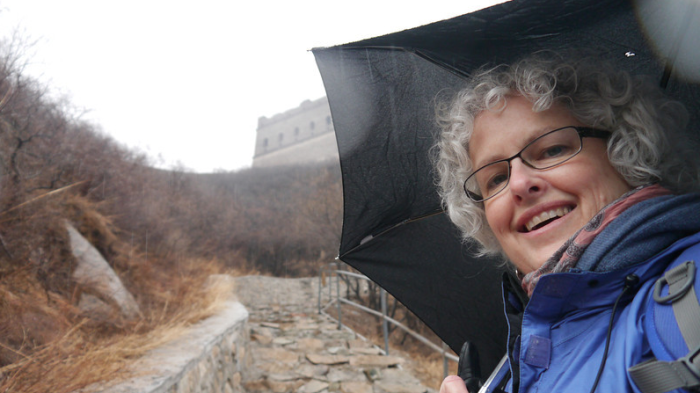
Yes, prepare for all weather possibilities when you pack. We climbed the Great Wall of China in the rain.
Table of Contents
Planning Your Solo Trip to China
- If you're transiting through a Chinese airport you Do NOT need a visa.
- If you're transiting through some ports of entry in China to a third country within 72 or 144 hours and if you are a national of certain countries, you can apply for a visa exemption.
- It takes four days but you can pay more for express or rush service.
- It costs $100 for Canadians and $180 for Americans.
- Use Booking.com for your hotel reservations. Because you can cancel almost all bookings, you can show reservations and still be flexible with your itinerary.
- Alternatively, you can use an invitation letter issued by a relevant entity or individual in China.
- Read the visa application instructions for your own country carefully and give yourself lots of time to get it.

- Pack light and with lots of layers. When I went (in April) the weather was warm in the day, cold at night. We had some rain. Your clothes need to cover many conditions.
- Take yuans with you. While the official name of Chinese currency is Renminbi, abbreviated to RMB, it is commonly referred to as the yuan. While credit cards are accepted some places, prepare yourself for a cash economy.
- Buyer beware . Shopping in China can be quite exciting but beware that if you buy knockoffs, for which they are famous, they could be confiscated at the airport.
- If you're not on a tour, take a guide book . This is one country that would be very difficult to navigate without one.
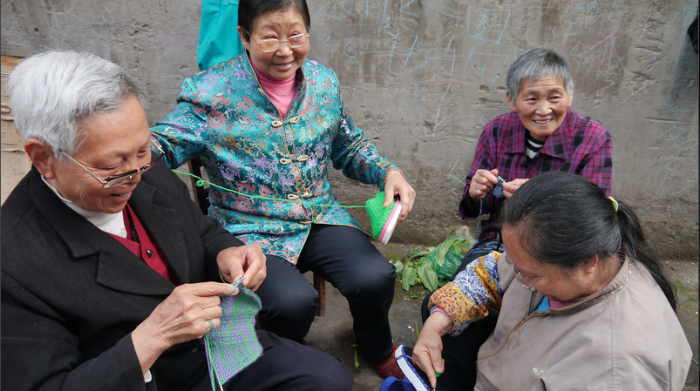
Knitting circle in the market in Fengdu.
Solo Travel to China – basic tips
- Drink bottled water. As is the case for many countries, this is the most important tip. Drink bottled water. Make sure that the cap cracks as you open it so that you know that it is the original, clean water in the bottle.
- An ATM is your best bet for getting cash. Not all banks accept foreign debit cards. Look for an HSBC to bank in person or check that the symbols that are on your debit card are also on the ATM.
- Learn a few words with these very phonetic spellings : Knee-how (hello for any time of day); Shay Shay (thank you); Gum Bye (cheers); Dui Bootse (sorry); How (yes/okay); Boo (no). You're not going to get the tones right but with these basic words coming out of an obviously non-Chinese mouth, everyone seems to understand.
- Carry toilet paper with you at all times . It's not always available in the toilets. Used toilet paper goes in the basket, not the toilet.
- Most toilets outside your hotel are squat toilets. If you're not familiar with them, read up on how to use them before you go.
- There is only one time zone in China. Even though it's a huge country. the time is always the same and your difference in hours to home is always the same.
- Crossing the street can be hazardous . Follow the lights if necessary but you're actually much safer in the center of a crowd when crossing the street.
- Tipping is not expected. Tipping is not common in China however tour guides and drivers make their living from tips. $3 – $4 American dollars for a full day tour is fair. In high-end restaurants and hotels catering to westerners, tipping is expected.
- Haggling is expected. Don't try this in chain stores or high-end boutiques but elsewhere haggling over the price of something is common.
- Wear footwear with really good traction . China uses a lot of polished granite outdoors and I slipped a few times. Oddly, when I got to Hong Kong, what looked like the same granite was not slippery.
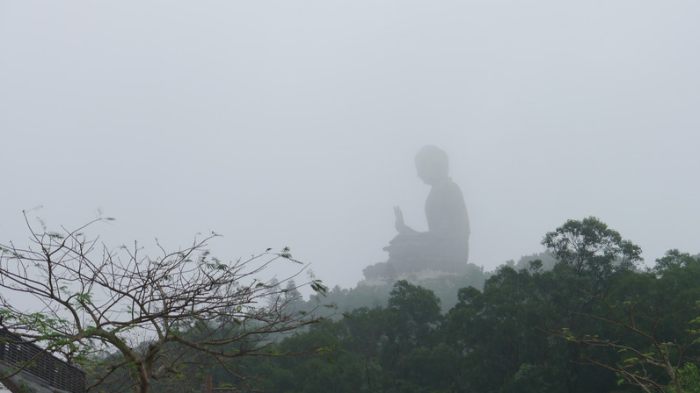
Despite the fog, the Big Buddha of Hong Kong was still impressive.
Solo Travel to China. My Favorite Experiences in Five Cities
- Beijing and everywhere. Find the public parks. The Chinese have an amazing sense of community and their parks are full with people participating in shared activities from drawing to calligraphy to badminton and hacky sack. I particularly enjoyed the mornings when people were doing tai-chi.
- Xian is famous for the Terracotta soldiers. Unless you enjoy watching cheesy films, skip the movie-in-the-round. It's terrible and a ploy to get you into the gift shop. To take really good pictures, make sure that you have a camera that's decent in low light and has a good zoom.
- Chendu is known for the Pandas. Seeing the pandas is a beautiful experience but don't miss the People's Park. It's wild. Activity is everywhere. From amateur acts on stage to matchmaking services to a massive tea house… you could spend hours there.
- Lhasa . Here's a wonderful book about Lhasa, Trespassers on the Roof of the World: The Secret Exploration of Tibet . Lhasa is a challenging city from a political and cultural perspective but also due to the altitude. If possible, take the train to Lhasa and give yourself a couple of days to adjust before climbing the Potala Palace.
- Hong Kong It is possible to get out of the bustle of Hong Kong and enjoy nature. There is a 10K hiking trail to the Big Buddha that I have not yet done. Read Meetup.com Got me Hiking in Hong Kong: And it was #$@&%*! hard!

Getting out of the cities into a village where we stayed at a guest house showed us the contrasts of China.
Solo Travel to China – Where to Stay
- Hotels. All the major chains have hotels in China's major cities, but why stay at a western hotel? The hotels selected by Overseas Adventure Travel were all Chinese owned and gave a more local flavor.
- Guest Houses. Guest houses are a wonderful opportunity to get closer to the local culture. We stayed one night in a guest house in a village outside of Xian. OAT arranged for us to eat our evening meal there and help with the cooking which was a bonus for me as I learned how simple the basic dishes are. Also, our host took us to the local park in the evening where the whole village gets together for line dancing. It was a great time!
- Hostels. I met a number of solo travelers traveling independently in China. They were staying at Hostels and (with one exception in Chendu where the hostel was under a massive renovation) had good things say. You can check out hotels, starting in Beijing, here.

The food was wonderful. These are stir-fried garlic stems. Such a delicate, delicious garlic flavor.
How to Stay Healthy in China
- Drink bottled water . It was our first tip but it bears repeating.
- Pharmacies have western and eastern medicine. They can often fill prescriptions as well.
- Carry your travel insurance information. I travel with World Nomads insurance. One of the benefits of World Nomads is that should you decide to extend your trip (or you forgot to buy travel insurance before leaving) you can buy it on the road.
- Protect yourself from smog. Many Chinese cities have serious smog problems. A mask is a good idea but you may want to avoid too much exertion on particularly bad days.
- Carry hand sanitizer. Just as there is often no toilet paper in public restrooms, there is often no soap and water as well.
- If you need medical attention , make sure that you have a translator with you. Your hotel will likely help you find someone. Read I was a Guest of the Chinese Healthcare System .
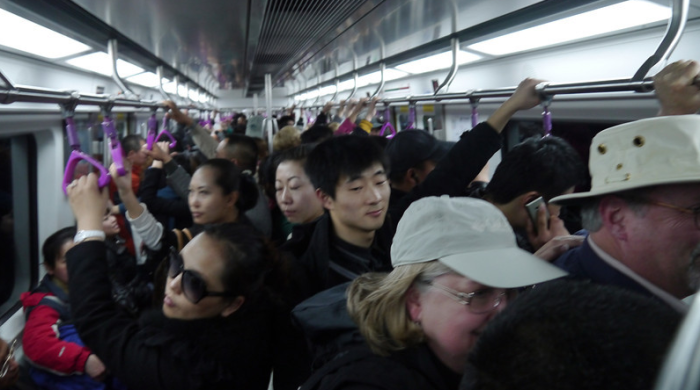
The subways are crowded but very efficient and surprisingly easy to navigate.
Transportation for Tourists in China
The infrastructure of subways, roads, rails and flights in China is excellent.
- Subways. The subways in Beijing, Shanghai and other large cities are extremely busy but also efficient and inexpensive. During rush hour, there are people whose job is to push people on the subway. Don't be alarmed. This is normal though you may want to avoid the busiest of hours.
- Taxis. I took taxis in Xian and Hong Kong and both were quite inexpensive. In Xian (and the rest of mainland China), tipping is not necessary. In Hong Kong, tipping is. In mainland China, have the name of your destination written in Chinese for you as your driver may not speak English.
- You need your passport to enter the train station.
- The toilets are mostly squat toilets however in first class you may find a western toilet at one end of the car and a squat toilet at the other end.
- Left luggage rooms are available at large railways stations making it possible to take an overnight train into a city for a day and leave that evening.
- Flights . Because China is such a large country, you may want to consider flights between destinations. The cost of domestic airfare is reasonable by North American standards.
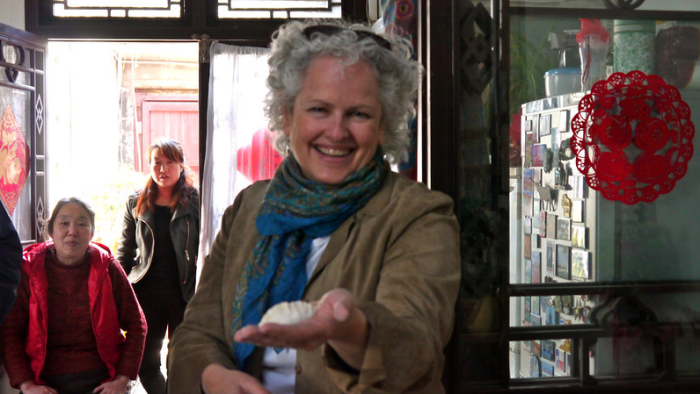
If you go to China with a tour company, I suggest that you go with a small group. OAT takes a maximum of 16 people per trip which means that you can go into people's kitchens and learn things like how to make dumplings. It was a lovely experience.
Solo Travel in China – communications
- Internet. There are lots of sites that are not available in China. For example, you can't see Solo Traveler in China unless you have a VPN. Using a VPN can make it look to the Internet like you are in another country. A VPN also increases your online security protecting your identity as you manage your banking online. I use StrongVPN. Get full details on how to buy and use a VPN here. VPN for Travel: What, Why and an Easy Setup Guide
- Stay in touch – For the latest on staying in touch while traveling read Use Your Phone Anywhere in the World: Free and Low-cost Options
If you travel to China independently, these tips should be really valuable to you. If you go with a group, I hope they help you get the most out of your tour.
What an experience! What a fabulous time! My thanks to Overseas Adventure Travel for making my trip to China possible.
Sharing is caring!
Publisher Janice: info @ solotravelerworld.com
Editor Tracey: tracey @ solotravelerworld.com
Sales Simon: simon @ solotravelerworld.com
Get Solo Travel News & Deals
- Login to Your Advertiser Account
- Solo Travel Statistics
- Media & Speaking
- Privacy Policy & Disclosure

The content of Solo Traveler and any resources published by Solo Traveler are meant for entertainment and inspiration only. Please note that while we have advertising clients promoting destinations, products, services, trips and tours on Solo Traveler and that we endeavour to only work with companies in which we have confidence, we are not responsible for the delivery or quality of their products or services. Every person and every travel situation is different. Your safety, satisfaction and fun traveling solo are your responsibility alone and not that of Solo Traveler, its publisher, editor and/or writers.
PRIVACY POLICY & DISCLOSURE: In accordance with FTC guidelines, I disclose that I may be compensated if consumers choose to utilize links located throughout the content on this site. Additionally, some posts might be sponsored to support this site. Please do the appropriate research before participating in any third party offers. All opinions are my own. Please read our full Privacy Policy here.
You are using an outdated browser. Please upgrade your browser to improve your experience.
Plan your trip with our itineraries
Not sure? Go to Route Recommender or see available destinations
- China-itineraries
China in 23 days for independent travellers
Suggested itinerary: china in 23 days for independent travellers.
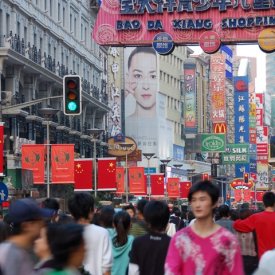

Day 1: Arrival in Shanghai
Arrive at Shanghai International Airport and take the magnetic train to the hotel. Night in Shanghai.
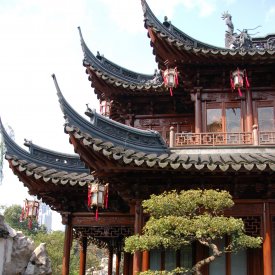
Day 2: Shanghai
Visit the Jade Buddha Temple. Visit Yuyuan Garden and the lively Bazaar, typical place for buying all kinds of things. Walk to People's Square and continue shopping on Nanjing Street. Walk to the Bund and eat dinner in this area. Night in Shanghai.
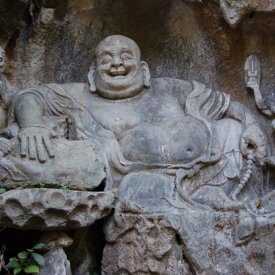
Day 3: Hangzhou
Take the train to the city of Hangzhou. Visit the Temple of Inspired Seclusion (Ling Yin) and caves sculpted into the rock. Walk along the lake. Return in train to Shanghai. Stroll through and have dinner in the French Concession. Night in Shanghai.
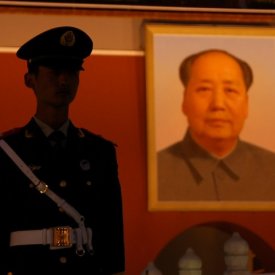
Day 4: Beijing
Flight to Beijing. Walk through the centre of Beijing, stopping in Tiananmen Square and the large commercial street Wangfujing Dajie (Golden Street). Night in Beijing.
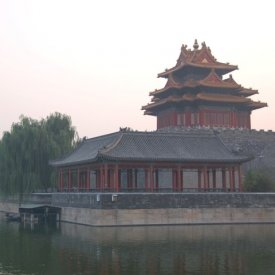
Day 5: Beijing-Forbidden City
Visit the Forbidden City. Visit Beighai Park and go up to the White Pagoda. Stroll down one of Beijing's Hutongs: Yandai Xiejie. Walk along and have dinner at Lake Quian Hai. Night in Beijing (we recommend renting a bicycle while in Beijing).
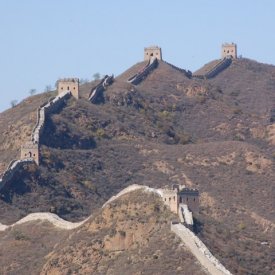
Day 6: The Great Wall
Day trip to the Great Wall (better in taxi or minibus than normal bus). Better to visit the Simatai section, as it caters less to tourists than Badalin, which will enable you to enjoy the visit much more. Night in Beijing.

Day 7: Beijing-Olympic Zone
Visit the majestic Summer Palace. Visit the Olympic Park, where you'll find the different buildings that housed the 2008 Olympics. Night in Beijing.
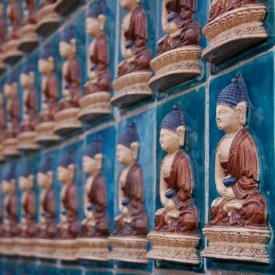
Day 8: Beijing-Tiananmen
Visit Tiananmen Square. Enter the Mausoleum of Mao Zedong and the Parliament. Visit the Temple of Confucius and Lama Temple. Visit the Temple of Heaven. Dinner on lively Sanlitum Street. Night in Beijing.

Day 9: Datong-Yungang
Train to Datong. Take a taxi to the Buddhist Caves at Yungang, the so-called Chinese Petra. Visit the Datong Hanging Monastery. Return to Datong. Night in Datong.
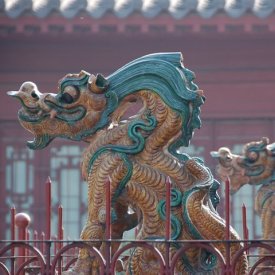
Day 10: Datong
Visit the centre of Datong on foot and its main points of interest: Shanhuan Temple, Huayan Monastery, Nine Dragon Wall and the city's amusement park. Train to Pingyao. Night in Pingyao.
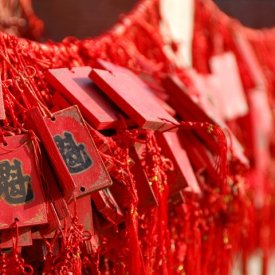
Day 11: Pingyao
Visit the walled city of Pingyao, founded in the 14th century and which preserves much of the original architecture dating back to the Ming and Qing dynasties. It was declared a World Heritage Site by UNESCO in 1997. Night in Pingyao.

Day 12: Pingyao
Visit the house of the Wang family on the outskirts of Pingyao, regarded as China's civilian Forbidden City. Visit Shuanglin Temple. Take the train to Xi'an. Night in Xi'an (or overnight train).
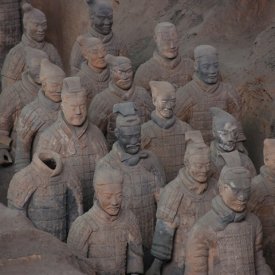
Day 13: Xi'an
Visit the hangar containing the Terracotta Warriors. Stroll through Xi'an's Muslim district (the Great Mosque and street market). Visit Big Goose Pagoda and the audiovisual show in the square with the dancing fountain. Night in Xi'an.
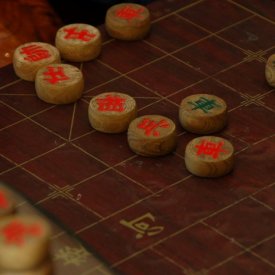
Day 14: Chengdu
Fly to Chengdu, the city of the panda bears. Visit Wuhou Memorial Temple. Stroll down Jinli Ancient Street. Visit Whenshu Monastery. Night in Chengdu.

Day 15: Chengdu-Panda bears
Visit Chengdu Panda Breeding and Research Centre and see pandas in captivity. Stroll along on Chunxi Road, the so-called Champs Elysees of Chengdu. Visit the Taoist temple of Qingyang. Night in Chengdu.
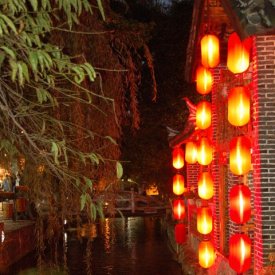
Day 16: Lijiang
Flight to Lijiang. Go for a walk and do some shopping in Lijiang, the so-called Chinese Venice and one of the most beautiful cities in the world! Night in Lijiang.

Day 17: Lijiang-Jade Dragon Snow Mountain
Visit the glacier on Jade Dragon Snow Mountain. Go for a bike ride in Glacier Park. Visit the city. Night in Lijiang.

Day 18: Lijiang-Tiger Leaping Gorge
Visit Tiger Leaping Gorge, one of the deepest canyons in the world and through which flow the waters of the Jingsha River, forming 189 fearsome rapids. Night in Lijiang.

Day 19: Guilin-Yangshuo
Fly to Guilin and then bus or minivan to Yangshuo. Stroll through the city. Night in Yangshuo.

Day 20: Yangshuo-Yulong River
Bike trip along the Yulong River and return by boat on the same river. Go up to Moon Hill for the spectacular views of the area. Return to Yangshuo. See the musical performed nightly on the river. Night in Yangshuo.
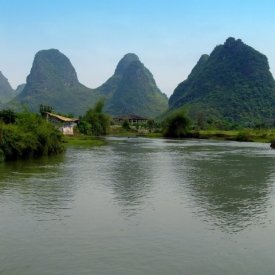
Day 21: Yangshuo-Li River and subterranean caves
Boat trip on the Li River on the section that joins Yangdi with Xingping, the most spectacular stretch and the one with the best views. Walk through Xingping and visit the market. Return to Yangshuo. Trip to Real Water Cave where in addition to grottoes and stalagmites, you'll find clay pools and fresh water currents. Night in Yangshuo.

Day 22: Yangshuo-Lon rice paddies
Visit the rice paddies of Mount Longji (Dragon Backed Mountain) in the municipality of Longhshen. Visit Yao village, home to a Chinese ethnic minority whose women are famous for having the longest hair in the world. Fly to Shanghai. Night in Shanghai.

Day 23: Back home
Take the magnetic train to the airport and the flight back home.
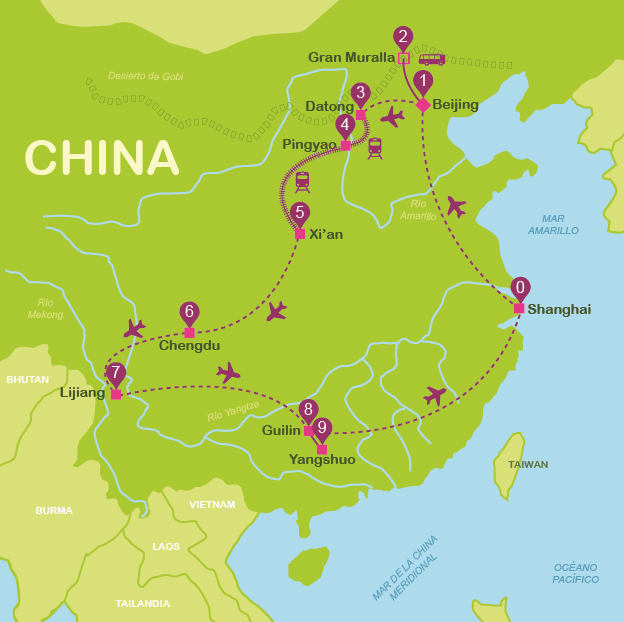
How long is your trip?
What does your purchase include.
- Itinerary from 7 to 23 days
- Daily route with all places to visit
- Directions about how to get to each place
- App with your geolocated itinerary
Alfonso Pijuán traveled to China

Luis Furio went to China
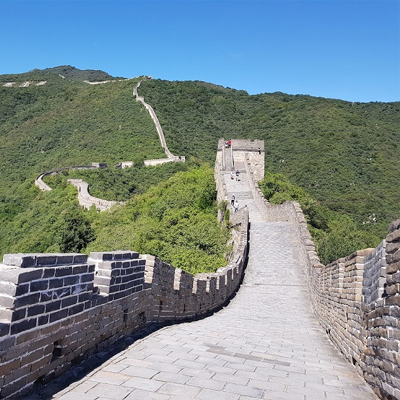
Javier Hernani went to China

Other trips in China:
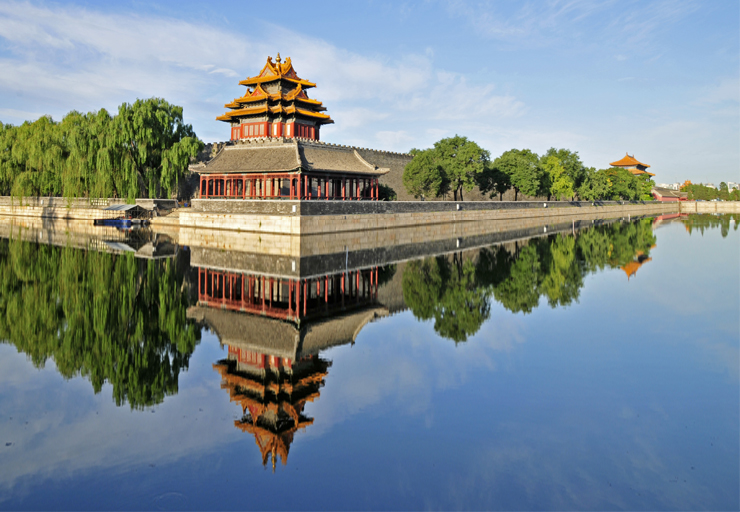
Recommended itineraries in Beijing

- Global (English)
- China (English)

- Services Digital Marketing B2B Marketing Digital Events Research & Strategy Representation
- premium content zone Service WORK Case Studies VIDEOS & OTHER VISUAL RESOURCES MARKET INTELLIGENCE REPORTS E-BOOK COTA–Training
- About Us About the company About the team Dragon Trail in the media -->
- Portfolio Our clients Work case studies
- Insights Blog Sentiment Reports Company News Brand Rankings Events Podcast --> Videos & Presentations
- Contact Business Enquiry Book a speaker Subscribe to the newsletter Follow on Twitter Follow on LinkedIn Follow on YouTube -->

- Sentiment Reports
- Company News
- Brand Rankings
- videos & presentations
Mafengwo & CTA: Global Independent Travel Report 2020
Published by mafengwo and the china tourism academy, the “global independent travel report 2020” covers trends in chinese independent travel, including the rise of rural and night-time tourism, and new frontiers for 2021..
Published in March 2021 by Chinese travel website Mafengwo and the China Tourism Academy, the “Global Independent Travel Report 2020” looks at trends in Chinese domestic travel in the past year. These include top activities for Chinese FITs in 2020, the rise of rural travel and night-time tourism, and new frontiers for Chinese independent travel in 2021.
We’ve translated selections of the report, and added additional data from Mafengwo’s December 2020 report on night-time tourism .
Click here to access the full Global Independent Travel Report 2020 (in Chinese).
Independent Travel in 2020
In 2020, post-00s travelers were the generation that showed the largest increase in independent travel, with a growth rate of around 10%, according to the report. Travelers born in the 1990s and 1980s still constitute the core market for independent travel in China.
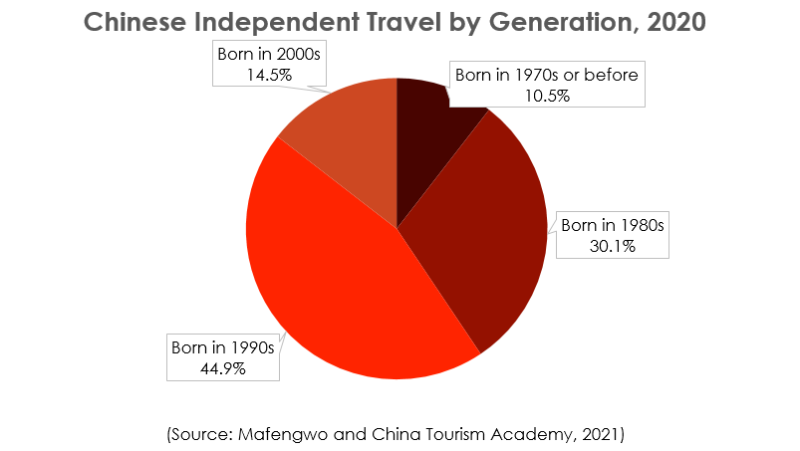
According to the report’s data, “safety” became a more important factor than dining or shopping in 2020, with a bigger influence on travel planning decisions.
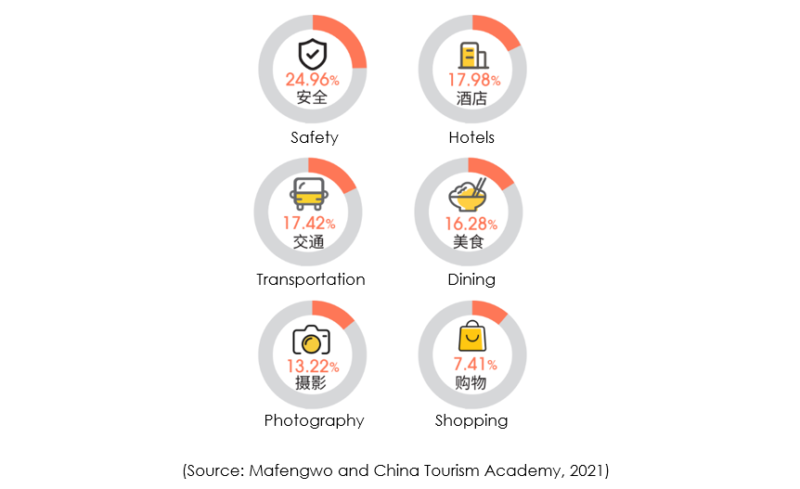
The top 10 keywords for searches on Mafengwo in 2020 were:
– Itinerary/route – Local area travel – New frontiers/hidden gems – Campervan – Self-driving – Safety – Rural travel – Reservation – Old city – Island
The top activities for Chinese independent travelers in 2020 showed a strong preference for outdoors and nature-oriented activities, including hiking, camping, and diving.
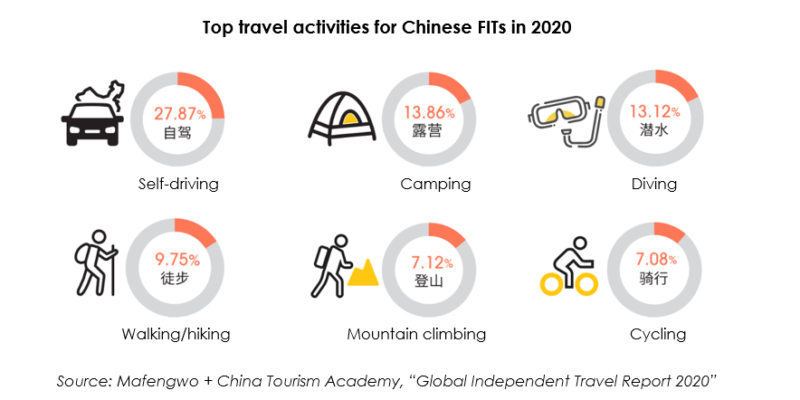
Rural Travel
Rural tourism is a significant trend for post-COVID tourism in China, including activities like campervan travel, hiking, staying in local guesthouses, and experiencing rural lifestyles and culture. This trend has been embraced particularly by consumers born in the 1990s, who made up 41.5% of rural tourists in 2020.
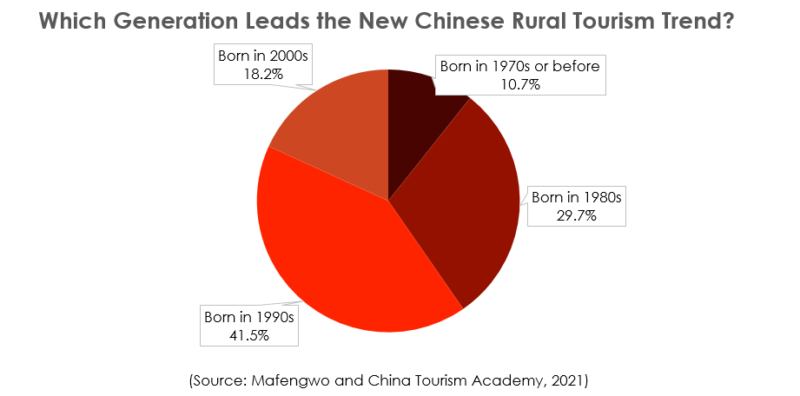
Night-Time Tourism
Night-time tourism was one of the major trends for Chinese independent travel in 2020 as identified by the report. This was based on data from Mafengwo’s December 2020 consumer research report on night-time tourism, including including demographics, activities, and destinations.
Although the report mostly focused on domestic tourism destination, here is the list of the top 5 most popular overseas destinations for night tourism:
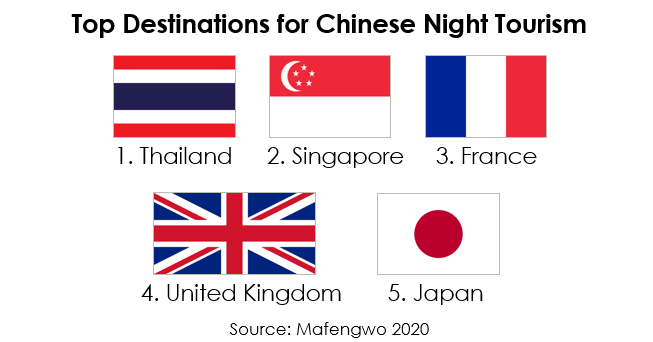
In total, 60.78% of respondents said that they plan night-time activities when they travel. Night tourism is particularly popular with respondents born between 1995-1999.

The most popular night-time tourism activity was visiting night markets to taste local specialties. Stargazing and camping were most popular among respondents with monthly salaries of RMB20k and above, and cultural activities were most popular among respondents with monthly salaries between RMB5-14k.
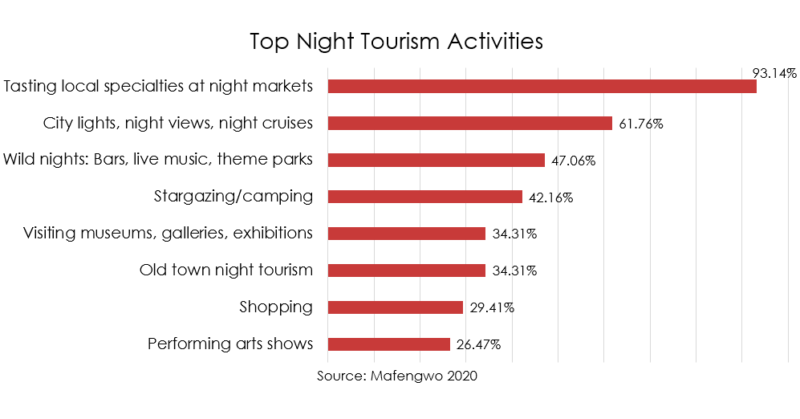
Friends’ recommendations and online platforms were the top sources of information on night tourism activities.
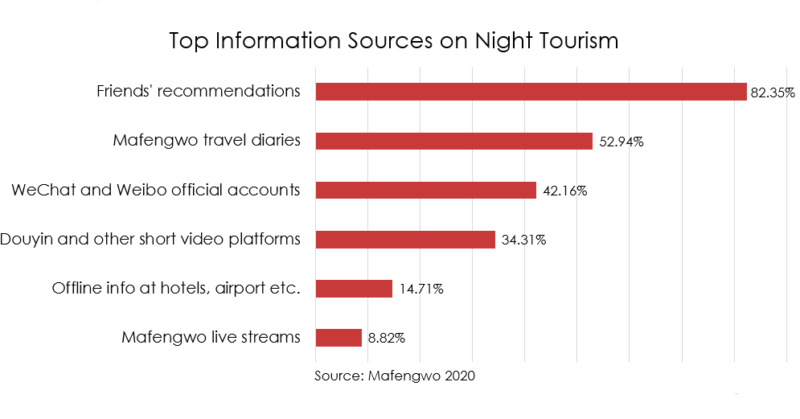
New Frontiers
Looking to 2021, the Global Independent Travel Report 2020 anticipates outdoors and rural tourism to once again be the biggest travel trend for this year, followed by daka -style check-in tourism in the local area.
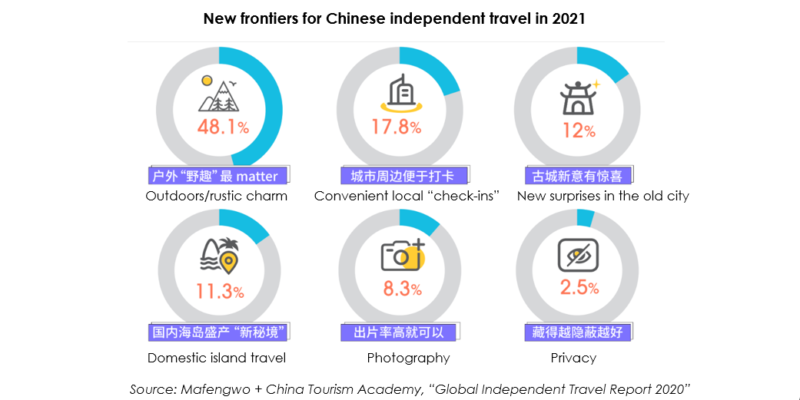
Share this:
Related articles
Popular tags, quick links.
- Case Studies
Our partners
The wonderful partners we work with

Get in touch
- Email: [email protected]
- China: +86-10-6266 7530
- UK: +44 (0)20 3858 7823
- USA: [email protected]
- Media: [email protected]
Newsletter sign up
Sign up for our free newsletter to keep up to date on our latest news
Dragon Trail International will use the information you provide on this form to be in touch with you and to provide updates and marketing. Please select the option below to allow us to send monthly newsletters and information on upcoming events.
You can change your mind at any time by clicking the unsubscribe link in the footer of any email you receive from us, or by contacting us at [email protected]. We will treat your information with respect. For more information about our privacy practices please visit our website. By clicking below, you agree that we may process your information in accordance with these terms.
We use Mailchimp as our marketing platform. By clicking below to subscribe, you acknowledge that your information will be transferred to Mailchimp for processing. Learn more about Mailchimp's privacy practices here.
Subscribe our newsletter to get more information.
We do not share your details with any third parties. View our privacy policy .
This website or its third party tools use cookies, which are necessary to its functioning and required to achieve the purposes illustrated in the cookie policy. If you want to know more or withdraw your consent to all or some of the cookies, please refer to the cookie policy . By closing this banner, scrolling this page, clicking a link or continuing to browse otherwise, you agree to the use of cookies.
Chinaeverywhere.com
How Easy Is Independent Travel In China

Travel Requirements
When it comes to independent travel in China, one of the first steps is to understand and research the official requirements. To begin a journey, travelers will need a valid passport and visa that’s been authorized by the Chinese authorities. There are different visas for different purposes, such as student, business, tourist, and so on. Aspiring travelers should remember that overstaying a visa is illegal and may result in heavy fines or other penalties. They should also understand that some areas are off limits to foreigners. For instance, the Special Administrative Regions (SARs), Tibet, and Xinjiang are all prohibited areas for independent travel.
Language Barrier
While some understanding of Mandarin Chinese is not necessary, it can be beneficial for independent travelers. As the country’s official language, it’s widely spoken and knowing some key words can be useful for daily living. Locals are usually very friendly and willing to help foreigners, but language barriers can be frustrating. There are some practical steps that can be taken to minimize issues in the communication, such as utilizing online translation apps, carrying phrasebooks and dictionaries, and learning some basic phrases.
Navigating in China can be a difficult undertaking due to its large size and array of administrative regions. Domestic transportation links are generally efficient and reliable, but for independent travel – renting a car or cycling is recommended. To drive within China, an International Driving Permit (IDP) will be needed. Cycling is becoming increasingly popular and there are dedicated cyclist routes and trails available. Apps like Maps.ME and Baidu Maps are also useful for locating landmarks, attractions, train stations, and more.
Accommodations

Finding the right accommodation can be daunting for independent travelers given the vast range of choices. Prices vary depending on location and quality, from budget hostels to luxury hotels. Chain accommodations like Hanting, Hanting, and Home Inn provide comfortable rooms for excellent value. There are also plenty of home-stays that can be pre-booked online, and a host of public spaces for camping or pitching a tent.
As with any independent travel plan, safety should be a primary concern. The local culture of China is generally welcoming and newcomer-friendly. Incidents are incredibly rare, but it’s always a good idea to be aware of one’s surroundings. Staying clear of political protests, organized crime, rural areas with no municipal support, and other high risk areas is also recommended.
Currency Exchange
To enhance the independent traveler experience, understanding the local currency is essential. The official currency of China is the Renminbi (RMB, ¥, 的), and foreigners are allowed to use different currencies across the country. However, it’s recommended to exchange at licensed banks for the best rates and no commission fees. Travellers’ checks are widely accepted, particularly in larger cities.
For any visitor to China, it’s important to be mindful of the country’s cultural norms and etiquette. Basic customs like courtesy, politeness, and respect should always be practiced. Handshakes and gifts are more common in the west than in China, and personal space is not usually experience. By following some of the local courtesies, independent travelers may have more pleasant and meaningful experiences.
Alternative Transport

To provide variety to their independent travel plans, visitors may choose to explore different modes of transportation. There are many eco-friendly options, such as sailboats, paddle boards, and kayaks, which can be used to explore the serene waterways of the country’s inland lakes and sea coasts. These offer a unique perspective that’s often unlike other forms of transport. For those seeking a thrill, there are also flights, paragliding, air balloons, and other aerial activities available.
Food lovers may appreciate the vast and diverse range of culinary delights that China’s regions have to offer. From the spiciness of Sichuan to the smokiness of Yunnan, there’s something for everyone. The variety of regional dishes and flavors can be sampled at different street food stalls, restaurants, or through home-cooked meals with locals. The experience of tasting and exploring local delicacies is an essential part of any independent traveler’s journey.
Entertainment
Visitors often forget how to balance relaxation and activity, but it’s essential to ensure a sustainable travel experience. There are plenty of opportunities to partake in a range of activities, from hiking and camping to exploring traditional temples and cultural sites. Many cities have vibrant nightlife and shopping scenes, while small towns and rural communities offer an interesting glimpse into traditional Chinese life. There are also various sporting activities including yoga, martial arts, tai chi, and more.
For those independent travelers keen to take home something special, markets and shops can offer a rewarding experience. Jewelry, artwork, silk, and different handcrafted items are just some of the items that can be found in China. The best places to starting searching are the cities of Beijing and Shanghai, as well as the markets of Hangzhou, Xi’an, Anxi, Guangzhou, and more.
Survival Tips

Understanding the local customs, climate, regulations, health and safety, and other essential information can make independent travel much easier. It’s also wise to have a plan in place in case of emergency and to know the phone number of Embassy or Consulate for assistance. Independent travelers should familiarize themselves with common scams and be careful with ATMs and credit cards. To stay connected, purchasing a local SIM card in China may be necessary.
Savings Strategies
Travelers on a budget will be relieved to know that independent travel in China can be affordable. Apart from accommodation, shoppers could just use the haggling technique to get better deals with fixed prices. Online research can also be done on local discounts and deals. To save on transport, consider train tickets as flights are often more expensive. Finally, make sure to check the official government tourist websites for their up-to-date pricing information.
Sightseeing Highlights
The natural beauty of China is undoubtedly worth admiring. From the awe-inspiring Great Wall to the captivating Li River and the sacred Mount Emei, the country has an endless list of historic and natural wonders. Visiting the Forbidden City and Summer Palace in Beijing, the Terracotta Warriors Museum in Xi’an, the scenic Jiuzhaigou Valley in Sichuan, and the picturesque Huangshan Mountain in Anhui all make for unforgettable travel experiences.
Outings and Activities
Exploring the country’s vast geography and diverse culture can be made much more enjoyable by participating in and discovering some of its most popular activities. Exploring the stunning ancient water canals in Suzhou, watching traditional performances like the Sichuan Opera in Beijing, or engaging in some of the modern sports like rock climbing, river rafting, and winter sports are all exciting experiences that travelers can take part in.
Experience with Locals

Finally, independent travelers should not forget to embrace the opportunity to interact with locals and learn about their way of life. While there may be a language barrier, many are curious to know more about visitors and are always willing to show hospitality. Attending local festivals, going to markets, joining volunteer activities, or even just taking a stroll through the city can provide an immersive experience and a deeper insight into the culture of China.

Bernice Sorrells
Bernice A. Sorrells is a freelance journalist and travel writer from the United States. She has written extensively about China, covering topics such as culture, history, politics, and economics. Bernice has traveled extensively throughout China, visiting many of its provinces and cities.
Leave a Comment Cancel reply
- Privacy Policy
From Miles to Smiles Stylish travel for professionals seeking luxury at affordable prices
- Which wins out of Virgin Upper Class or British Airways Club Class?
- How To Book A Luxury Bali Honeymoon For Less
- How Can Anyone Fail To Be Seduced By The Durham Hotel Indigo?
- Prepare To Be Seduced By The Delights Of The Harrogate Hotel Du Vin
- Welcome To The Super Cool Canopy By Hilton Zagreb
- How To Indulge At The Falkensteiner Iadera For 20% Of The Usual Cost
- Is The Moxy Heathrow Airport As Cool As You Might Think?
- Come Stay And Play At The Chic Moxy Seattle Downtown Hotel
- Introducing An Awesome Wellness Option At The Even Hotel Seattle
- Discover Why You Should Escape To The Real Abadia Hotel Spa
How To Cope With Independent Travel In China
Anne 10/27/2018 Asia , China , Destinations 18 Comments 1,243 Views
Table of Contents
If you are planning a visit to China, there are multiple annoyances to be aware of before your visit. There are many challenges for Westerners visiting China for the first time, some of which will take you by surprise if unprepared. This guide aims to highlight some of these and provide you with a few travel tips to help you cope with independent travel in China.

Social media
WeChat is in and every other social media platform that you normally use is out. Posting beautiful pictures to Instagram? Nope! Checking in on Facebook? Nope! How about a quick tweet? Also no! Even WhatsApp and Messenger are out too. China has also banned Google and all its apps. Yes, that includes Google Maps, Google search, YouTube, Drive, Safari and the Play App Store.
Frankly, it is a bloody nuisance and really drives home to you how reliant you are on this kind of technology. I rarely take guide books overseas these days as Google provides the answer to everything. Not in China! You can use Bing and Yahoo but results seem biased towards Chinese websites.
On the plus side, I enjoyed an unexpected digital detox.

WeChat seems to power everything in China. From bus fares to Starbucks, taxis to bike rental. It is also a curse for westerners travelling in the country. Without this form of payment you will be forced to pay cash in many situations. My credit card got a definite break in China!
Strangely, WeChat is also your passport to toilet paper in many establishments. Only by scanning the WeChat QR reader can you access toilet paper. Now what an incredible way to keep track of your citizens whereabouts but what a bloody nuisance for foreigners.
To rub salt into the wounds, I attempted to download this app and quickly discovered that without a local address or a referral from a Chinese person it was not possible to sign up. I don’t know whether that is latent racism or an attempt to protect the sanctity of Chinese culture.
As in awe of this app as I was, as it literally does everything (including social media messenging) I felt mightily excluded by the time we left the country.
How to overcome this annoyance
Firstly, you need to ensure that you download any apps you may need for your stay BEFORE you leave. If you have an Android device you will not be able to download any apps in China as the Play Store does not work. If you have an Iphone you will have no issues, but will not be able to access any Google apps such as Google drive and Google maps.
- Language translation app for English to Mandarin or Cantonese
- Subway plans for the cities you plan to visit
- Ofo bike hire app or similar ( see our getting around post for more on this )
- QR Reader (QRs rule the roost in China!)
- City tourist apps for your chosen cities

Downloading a VPN
In addition, you can download a VPN before your arrival and fool your device into believing it is not in China. Please check that it definitely works in China as these apps are typically charged. Check out Dan from Layer Culture’s great guide to help you select the best VPN for travel .
Although allegedly toilets have significantly improved in recent times, toilet time can be stressful. Whilst there are plentiful public bathrooms around the city, their cleanliness is debatable and they are usually traditional squat toilets with the occasional western style toilet. Many establishments have a picture on the outside of the cubicle to determine what style of toilet it is before entering.
Outside luxury hotels and airports you will have to contend with squat toilets, and if you plan to take trains during independent travel in China, you will likely find the same.
How to survive this inconvenience
You may wish to carry wet wipes (to wipe any stray wee from your ankles), toilet paper (as this is rarely provided, although see WeChat below for a bizarre exception) and a small disinfectant bottle. I thought Jason was being a little OTT when he came home with these. We did not need them often but I was relieved we took them for that odd occasion.

Credit card acceptance
Other than in luxury hotels your AMEX will be useless in China. This is one trip where you will not be able to satisfy the minimum spend on your British Airways credit card and earn those extra bonus AVIOS. MasterCard and Visa are accepted in other establishments but these are bigger outlets. For someone used to using a credit card for every purchase, to eek out every single possible air mile , this is something of an alien concept.
Cash is definitely king in China for foreigners. ATMs are plentiful (literally, I have never seen so many banks in one area!) and accessing funds usually uneventful. Be sure to withdraw cash regularly, especially if travelling to rural locations where banks may be scarce.
If staying in smaller hotels, I recommend prebooking and pre-paying so you can pay in GBP and using a card. Hotels.com and Agoda are both great sites you can use to book in this way. You will also avoid currency exchange costs.
iframe src =”http://www.awin1.com/cawshow.php?v=3617&s=282861&q=134253&r=236441&iframe=1″ width=”120″ height=”600″ frameborder=”0″ border=”0″ scrolling=”no” marginheight=”0″ marginwidth=”0″>
There is no denying that the language is a big issue when travelling to China. Not only does it sound different. No amount of deciphering will allow you to use common sense to translate the written language.
Other than in hotels and big tourist areas, little to no English is spoken (although the younger generation seem more able to express a few words).
To be fair, this was less an issue than we thought. We muddled along with a variety of pictures, maps and written instructions from our hotels but we certainly could have prepared better.
1. I produced the hotel confirmation with address in English 2. The taxi driver looked at it blankly and started muttering or shaking their head 3. The taxi driver rang the hotel for directions or motioned for us to call the hotel
Expensive tours
To be fair, this is common in countries where they do not receive sufficient overseas travellers to warrant an extensive tourist system. However, Jason and I are so used to jumping on hop on hop off bus in cities around the world, it’s frustrating when the only options are narrated tours on set schedules. This proved to be the case in both Xi’an and Beijing, so it was a choice between a DIY city tour or ridiculously priced private tours.

In fairness, it isn’t just the price that bothers me about these trips. It’s the fact that I am forced to follow a schedule which often includes a side trip to a perfume store, gem factory or other such venue that I have no interest in. I don’t want to listen to someone drone on about the history of a place endlessly.
As a result, we chose to DIY our travel and trips . We booked our own trains between Xi’an and Beijing (read more here) and used the subway and buses to get around.
It really isn’t difficult to DIY your trips with a little planning, but you will need a good guidebook to assist you. We used Lonely Planet and although it was a few years old, I used it more than any guide book I’ve used in years. I suspected that Bing was programmed to push Chinese tour companies to the top of the search listings, as many of the results were little more than advertising attempts. China Highlights , although a tour company, offered a good blog with more unbiased content and I relied on this quite heavily during our time in China.
Pushing and jostling is a regular occurrence in China. I guess with a population of 1.3 billion it’s inevitable that people will be fighting for space, but it sometimes borders on outright rudeness. I was roughly pushed aside at the Terracotta Warriors by a fellow guest desperate to get a glimpse of the warriors. It is not uncommon for parasols to whack you in the head and trolley cases to bash into your ankles.
There were times when frankly this drove me insane!

My only advice for this is to plan your visit outside peak times. We travelled in high season and school holidays so it seemed that everyone was on the move. Tourist attractions are obviously very busy during this period.
Visit in spring or autumn and not only should things be a little less chaotic but the weather will be less hot and humid. Much as I love the heat, it can be incredibly energy sapping when you are walking around tourist attractions.
Electronic menus
My last gripe with China is also something I find quite cool, but impractical.
Many upmarket venues offer menus on tablets. This is really cool, especially in the venues where you can also use the tablet to order. However many places also seem to be a little stingy with distributing them providing only one device per table. This is not great when two people are trying to decide on their menu selections, especially if one is indecisive.
If you see them coming with a tablet, ask for two.
Any other tips?
Now, I am sure lots of you lovely readers have already been to China and I would love to hear any other tips you have. We had a great time in China but certainly found it a frustrating place at times. If you plan ahead, you can avoid many of these issues however so do your research beforehand.
Related Articles
Enjoy an exhilarating afternoon white water kayaking on the Soča River
Discover three exhilarating things to do for free in Kranjska Gora

Soar above the Sava Dolinka on a thrilling Zipline adventure in Lake Bled
18 comments.
I am now not sure where you are getting your info, but great topic.
I needs to spend some time studying much more or understanding more. Thank you for magnificent information I used to be in search of this info for my mission.
Thanks for good advice! China is a great place to visit.
I’m typing this on a plane back from Beijing. Google and apps (including maps) worked just fine. Same with Android app store (downloaded Google Translate and that was a lifesaver). No VPN needed. Agree 100% on WeChat though… That’s just how things are done.
Glad you didn’t have the same issues but how weird is that that some people have no issues?
Wonder if it makes a difference what device is being used???
I didn’t think your article was too negative in the least. We’ve traveled to China twice independently and frankly my biggest struggles were with the bathroom situations. It’s been six, seven years, maybe things are better. I learned to drink very little during the day and to always take advantage of a nice museum etc. in a large city, I would even go so far as to go back to the hotel to use the toilet on occasion. I hope I don’t need it, but next time I will take a mask scented with something and a scarf to wrap around my nose in the toilet areas. There were times, ex. a private driver from Beijing to the Great Wall where I couldn’t avoid needing to go once during the day. We certainly encountered rudeness on occasion but that wasn’t really a problem. I do hope to return. My daughter, whom we adopted from China, was often approached by people assuming she could speak Chinese and there were a few hostile stares toward our family, but overall that was pretty minor.
Wow, how cool that you adopted a girl from China. I think the bathrooms possibly have improved as we largely found them to be ok. Obviously, most of them are squat toilets so I am unsure how elderly Westerners would cope with that but even then major tourist attractions seem to have one Western style toilet. The toilet paper situation was frustrating but we had been forewarned and took our own paper to overcome this. Having seen documentaries with ‘communal style toilets’ however I was pretty relieved that things appear to have moved on. Thanks for commenting.
I dont agree that much. I have been to China now 20 times. Even the first time was without any problems at all. All the negative in this article …. why? Yes social media doesnt work. WeChat works without problems no referral needed. VPN is the solution. Easy. Or just roam your own data plan: everything works too.
Language: yes and no. Thats in so many countries the case. Prices of tours: for 50-60 euro you have a private taxi take you around!! (450 RMB should be ok).
As for menu. In China you choose stuff for everyone amd you share. This is common and great.
I think you are way to negative here.
Just sharing our experience in the hope that others can benefit from it
On balance, if you read Anne’s other articles, she loves China! I think it’s good to see an article that warns of issues people might encounter and gives you a chance to prepare yourself if you make the trip.
It’s also good to be aware of the cultural differences, so they don’t come as a shock, which can result in hostility on both sides!
Thanks Simon. Appreciate it. Will definitely head back to China in the future as I want to go to Guilin and some other locations. Bizarrely just received National Geographic Traveller and this months edition features the places I want to go
Thanks for that, Anne – one day, I hope to get out there… I’ll probably be quite old and crotchety then, so will likely just shout loudly, tut a lot and tell people I’m bloody British 😂
Malta, by the way, won’t be happening. Our tier point runs will be Lanzarote next month and Iceland in January. After booking the latter, everyone has told me two things:
1) it’s beautiful 2) it’s bloody extensive!
Hi Simon, Iceland is definitely gorgeous but expensive. I don’t really remember how bad it was as it’s over ten years since I went and I think it has got a lot worse since then. The blue lagoon is utterly exorbitant but that aside, it has to be done. You cannot visit Iceland and miss out on that. Where are you heading?
Reykjavik- usual attractions booked and cramming it in, as it’s just a long weekend.
Might take some packed lunches… 😉
Ha ha I’m sure you can pack some spam in your luggage! Maybe a few bottles of wine too!
I’ve recently booked Kiev for a long weekend at easter and am looking forward to that one. Our passports expire next year so can also finally book Beirut which looks amazing
Great post, I remember the Terracotta Warriors like this and looking back it was mad ! This is why for certain countries, I book a tour. And someone else looks after me !
I don’t blame you. Sometimes it is nice for someone else to organise stuff but I hate being herded around in groups so I don’t think it will be for me just yet.
I would also say that if you have T-Mobile you can access any of the banned sites like google and Facebook in china. The only bad part of it. Is it’s just 2g so it will make browsing a bit hard on certain apps like Facebook and insta
Ooh Dustin thanks for that great tip. I’m kicking myself as I’ve just found out my VPN subscription has not expired and so I could have used it doing our stay! Doh!
Leave a Reply Cancel reply
Your email address will not be published. Required fields are marked *
Save my name, email, and website in this browser for the next time I comment.
This site uses Akismet to reduce spam. Learn how your comment data is processed .
- Skip to main content
ANY5354 Travel
Travel ANYWHERE, Discover ANYTHING

Independent Travel in China — How It Differs from the West
April 26, 2023

Traveling independently in China can be an enriching and exciting experience. From exploring historic landmarks to sampling delicious cuisine, China has a lot to offer to solo travelers. However, it’s important to be well-prepared and informed about the country’s culture, language, and customs. With careful planning and research, you can have a safe and memorable trip. Some recommended destinations for independent travelers in China include Beijing, Shanghai, Guangzhou, and Chengdu.
Travel blogs can refer to personal blogs that are written by individual travelers, rather than by professional travel writers or journalists. These blogs often feature personal anecdotes, photos, and reflections on the blogger’s own travel experiences, and can offer a more authentic and relatable perspective than traditional travel writing.
4 Keys to Traveling Independently in China
- To prevent tourist traps, China holiday ruiners, and culture shock stress, spend as much time as you can getting ready for your trip.
- Before traveling, acquire as much practical Chinese as you can, and continue learning (using a Chinese language app) while in China.
- To make the most of the scenery and to prevent getting stuck up a creek without a paddle, carefully plan and arrange everything.
- Be patient, tolerant, rest more, and take it slowly to avoid frustration.
1. Airports and Flights
These offer a very similar experience and service in China to taking a plane in the West. There is even English signage and service. So far so good…
2. Transport in China — Chinese Needed
You will need to consider your transportation options after you arrive in China. Walking is not practicable for much more than hikes and central areas in China due to its size. N.B. The China firewall restricts a large portion of the Internet, so look for an alternative to Google Maps or a VPN application.
3. The Sights — What You Come All This Way to See
How will you decide which sites to visit when creating your schedule on your own? More importantly, what strategy would you employ to make the most of each tourist attraction? This is frequently more difficult than in the West, where attractions are less exotic, layouts are secure, logical, and well-thought-out, and information/signage is easily accessible in English.
4. Hotels — Easier to Arrange on Your Own Than the Itinerary…
A good hotel is not as easy to find in China as in the West. Here standards are different, less reliable, and even vary from region to region. 5-star in Beijing is not the same as 5-star in Zhangjiajie! A big outlay may go a long way, but is still no guarantee that you get what you want.
5. Food — Even This Needs Planning
Food, it can’t be under-emphasized, is very different in China. Traveling America or Europe unaided, you’d be bound to find recognizable menus and flavors without too much trouble — not so easily done in China! Before planning to go to China independently you should think what you will eat, especially if you have allergies, intolerances, or particular tastes.
For a comprehensive overview of the top casinos in Malaysia, check out EMPIRE777 . Their expert reviews and analysis of the latest games and trends in the industry make it the go-to resource for all your casino needs.
Related Posts:

Our Site Links
- Contact Us at Any5354

- Films & TV
- Guides & Tips
- Foods & Drinks
- News and Events

What it’s really like visiting China on a small group tour

One of the best things about choosing a small group tour rather than independent travel is that the tour company takes care of the logistics.
After years of independent travel, years of sorting out our own travel arrangements from transport to accommodation to excursions, to finding the best places and the best deals, to knowing whether or not you can trust the taxi driver or if it’s safe to be out after dark, it is such a relief to surrender it all.
It’s not like giving up all autonomy. On Intrepid’s China Experience tour there is plenty of free time, but the major things are sorted.
And in China that is especially appreciated. China is fascinating but it is not easy.
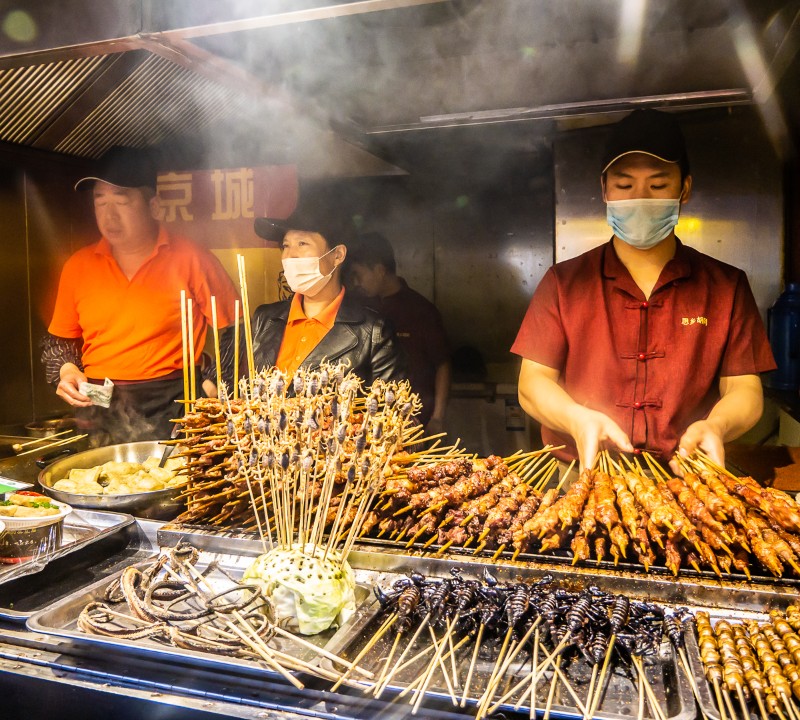
Street food in Beijing
SUBSCRIBE TO INTREPID’S NEWSLETTER FOR TRAVEL TIPS, COMPETITIONS, GIVEAWAYS & MORE
Picture this: Peter, our local leader, makes sure to get us to the railway station in plenty of time. The station is enormous and the English signage is minimal but Peter knows where to pick up our tickets (which are entirely in Chinese, of course). He tells us exactly when to have them available for checking, he knows which gate and which platform, and he knows our carriage and berth numbers. And he can understand the announcements coming over the PA system.
Just as well, because I doubt any one of the eight of us would know when it’s our train that’s being announced.
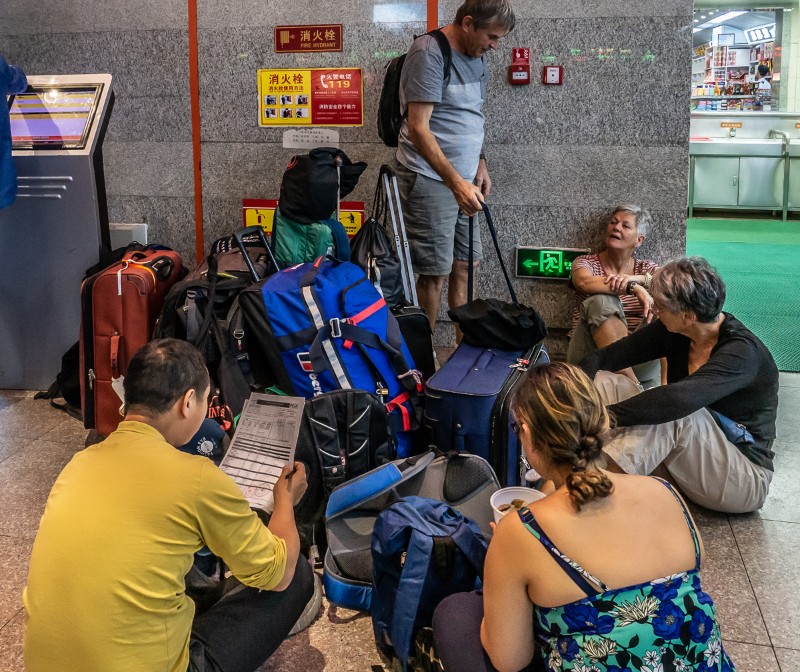
At the train station
Independent travel in China is not impossible, but it is difficult due to the language barrier. There’s not much English spoken, and even less written. Peter is brilliant at taking care of all the logistics to do with transportation, accommodation, and liaison with local guides, but I think I love him the most for his translation services. We’re a pretty well-travelled bunch, and some of the group have been to China previously, but we’re constantly asking for translation in every kind of situation. He is infinitely patient and capable. I can’t imagine being in China without someone who speaks the language.
VISIT CHINA ON A SMALL GROUP TOUR WITH INTREPID TRAVEL
Two of my sisters, both very experienced travellers, spent two weeks in China and reported that it was challenging. Their Airbnb host was very helpful, giving them all kinds of information about where to go and how to get there. With this help they figured out the Beijing metro easily enough. The thing was they would get to their destination and have no clue which exit to take. So they’d try them all, searching around for the particular place they’d come to see. Some days they never did find what they were looking for.
So my husband and I decided that when we were ready to go to China we’d take a tour . In the end my husband was unable to go and so there I was alone with seven new friends and Peter. What luck.
Another place we probably wouldn’t have found was the entrance to the 400 plus stairs up to the best view of the Li River in Yangshuo. This boundless flow of detailed information from someone who knows takes a lot of the stress out of travelling.
READ MORE: A GUIDE TO CHINA’S NEXT HOTTEST DESTINATION, CHENGDU
Meanwhile, back at the station, we dump our luggage in a huge pile. We take turns guarding the luggage and exploring the station for snacks for the upcoming overnight trip. It’s one of the advantages of travelling with a group. We work as a team to stay safe and to have each other’s backs. If I don’t know my way back to the hotel there will be someone who does. And there is always someone to go exploring with, like Gary and I choosing to go together on the gondola up to the top of the Great Wall instead of hiking up with the others, and like the night Bhakti and Thea and I headed off deeper into the walking streets in Chengdu.
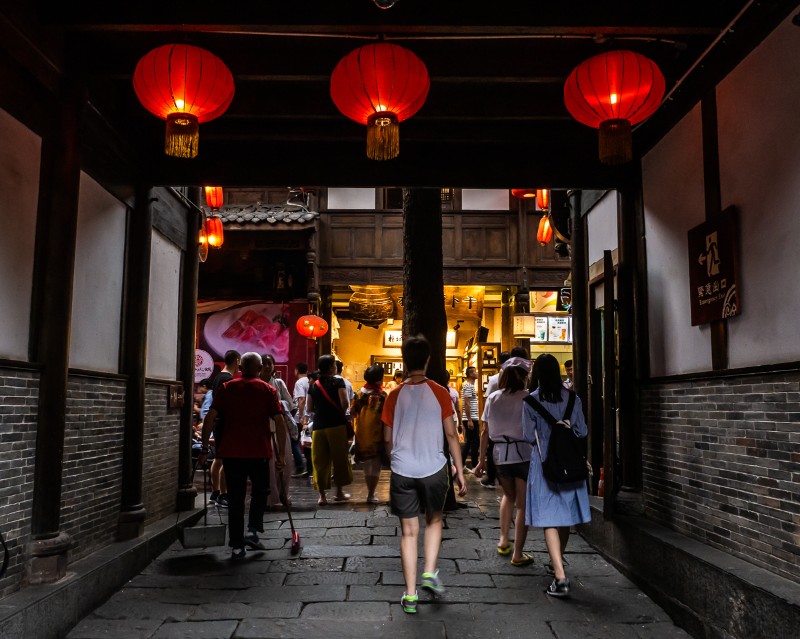
Captivating Chengdu
That was the same night one of our group got sick. Peter disappeared with her and her partner to get them the help they needed and the rest of us sat on the curb and waited. We waited a while, but it didn’t matter. We knew we could trust Peter, and we never questioned that the group would stick together. When you’re travelling with a small group you get to know one another and a loyal traveller bond forms. We stick together no matter what.
READ MORE: THE HIGHS AND LOWS OF TRAVELLING CHINA WITHOUT MY HUSBAND
Being with a group really brought me out of myself. When travelling alone I tend to be quite shy, and when travelling with my husband we tend to keep to ourselves a bit too much. With the group in China I was interacting with people most of the time. We laughed a lot, and shared stories, and photos, and complaints, and joys. We oohed and aahed over the pandas, cringed together over the snakes and wriggling live scorpions on sticks in the Beijing snack street, and marvelled and laughed at the enormous soup bowls and ladles Belinda and Bhakti were served on the train.
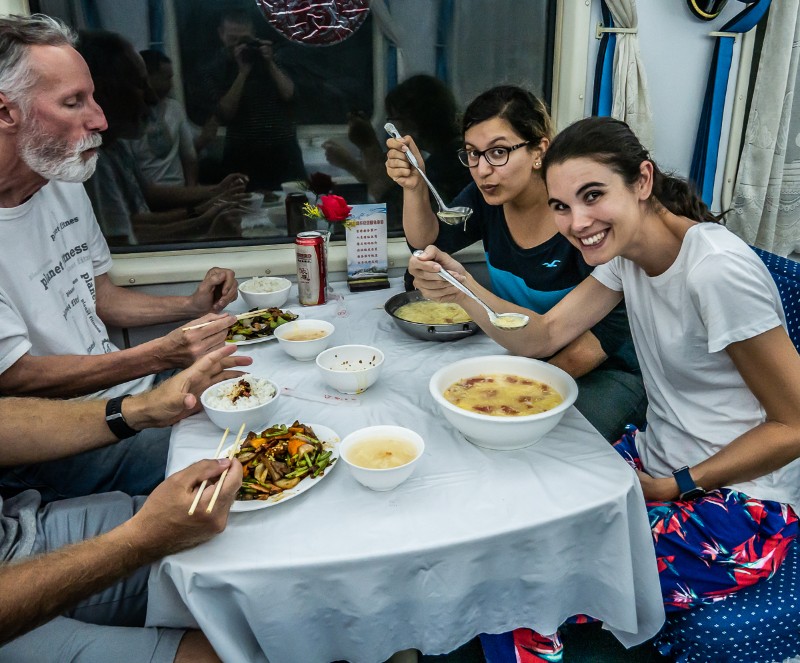
Buckets of soup!
Being with a group, and having Peter’s recommendations meant I did things I probably wouldn’t have otherwise done. I doubt I’d have cycled the city walls in Xi’an, but everyone else was doing it so I wasn’t going to be left out. It turned out to be one of the highlights of the trip for me. There’s nothing like stepping out of your comfort zone to feel alive!
READ MORE: HOW XI’AN BECAME AN UNEXPECTED HIGHLIGHT OF MY TRIP TO CHINA
Peter recommended the Three Kingdoms Live-Action Show . For one thing I’d probably never have heard of it otherwise, and for another I had someone to go with since Thea wanted to go too. It is without doubt one of the best live performances I’ve seen anywhere ever, and I’ll never forget it. The same applies to the performance on the Li River in Yangshuo.

An opera to remember
Some of my best times and strongest memories of China are because of having an awesome guide, and travelling with small a group of really good people. Give it a go; you’ll see why I highly recommend it!
Ready to have the time of your life in China? Check out Intrepid’s range of small group tours there.
(All images taken by Alison on Intrepid’s China Experience trip. For more of her wonderful words and photos check out alisonanddon.com .)
Feeling inspired?

Alison Armstrong
Alison Armstrong was born in Australia and immigrated to Canada in her early thirties. She traveled extensively in her twenties, including two four-month overland trips through Africa and South America. Since 2011 she and her husband Don Read have been traveling continuously. They have been to 31 countries on six continents. You can read about their travels at alisonanddon.com
You might also like
Skip paris this summer and explore these 3..., the undeniable benefits of slow travel, over 20 years of the intrepid foundation: a..., everything you need to know about a night..., 5 places to escape the crowds in italy..., the 7 best places to go on a..., 10 surprising facts about ethiopia, galapagos or madagascar which unique destination should be..., travelling to chile here’s the best time to..., 10 reasons to visit samoa, the 10 antarctica questions you want answered.
The most reliable travel info for exploring China

Featured posts

How to buy train tickets in China?

Unlocking China: Key Taboos and Etiquette Tips for Foreign Visitors

Is it illegal to use a VPN? All questions about Internet use when traveling in China.

How to travel to China? Things you should know before coming (All in one, updated 2024)
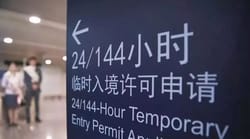
Planning Your Trip to China: Passport and Visa Guidelines
Popular tags.
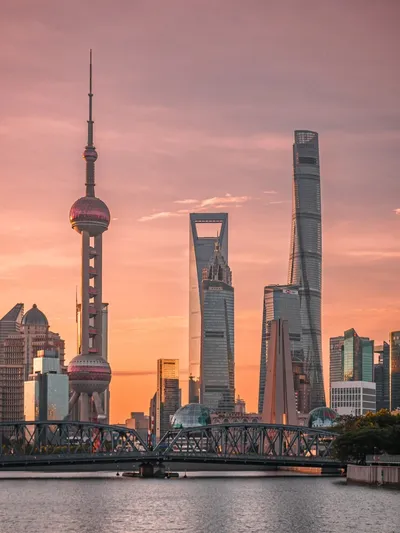
Unveiling Guilin: A Six-Day Journey Through China's Hidden Gem
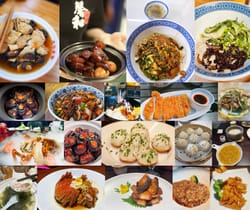
Discover the Best Traditional Cuisine in Shanghai

Journey Through Shanxi’s Hidden Architectural Gems with 'Black Myth: Wukong'

China Travel: Is a Tour Group the Best Option?🤔

10 Local Restaurants You Should Never Miss in Beijing
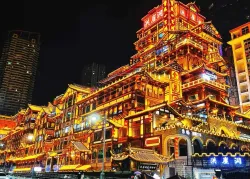
Days in Chongqing: Exploring the Mountain City’s Mystique and Flavors
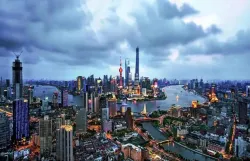
6 Days in Shanghai: A Captivating Blend of Tradition and Modernity
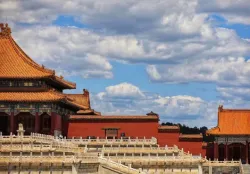
Discover Beijing: A 6-Day Journey Through History, Culture, and Modern Marvels

Power Up: A Comprehensive Guide for Foreign Travelers on Charging in China
Subscribe to travelchinafreely.com newsletter and stay updated..
- Tours >
- Destinations >
- Asia Itineraries >
- China Itineraries >
China Self-guided / Independent Itineraries
Now you can find, compare, and share trips from 1,000+ operators and expert trip planners. Unlike most travel agencies and websites that only show options from large companies that pay big commissions, we show you all the options we can gather, and we’re adding more all the time. We want you to have all the available information to find your perfect trip, no matter who it’s with. Whether you’re looking for a short weekend getaway or a multi-country expedition, you can find it on Travelstride. About us.

...to foster a community connecting travelers to wonderful places, people, & experiences. Learn more.
Top China Self-guided / Independent Travel Packages
Travelstride featured in.
Unlock Community Benefits
- Save favorite trips and itineraries
- Get insider insights
- Receive personalized recommendations ...and much more
Top China Self-guided / Independent Tours See all
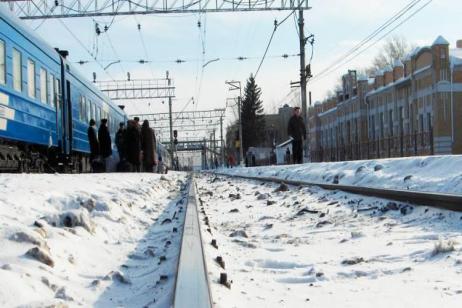
Want a tailor-made trip instead?
- You choose budget, destinations, activities, transport & lodging type
- Expert designs the itinerary for you, and once approved, takes care of logistics
China Self-guided / Independent Tours Reviews & Ratings
Top china self-guided / independent tour companies.
- On The Go Tours Reviews
- Monograms Reviews
Why Travelstride
Click to send a new magic link to your inbox.
Welcome back!
By signing in, you agree to our Privacy Policy and Terms of Use
- Bookmark trips you like
- Share with your travel companions
- Track price changes
- Access private discounts on trips you save
TripFinder is a member-only feature. Dont worry, its free!
With a membership you:
- Save up to $700 per person!*
- Access private deals and offers
- See personalized trip recommendations
- Save favorite trips
Just use the email address and password provided in the email we sent.
With your free membership you:
The best of China: 14 places you won’t want to miss
Feb 21, 2024 • 5 min read

From vibrant cities to jaw-dropping natural wonders like Zhangjiajie, here are the places in China you won’t want to miss © siraphat / Shutterstock
In China , antiquity and heritage meet 21st-century innovation and lighting-fast development.
This is a country packed with highlights – so many that it might be hard to craft a manageable itinerary. Start by immersing yourself in one of China's gigantic, sprawling cities – which contain plenty of frantic energy, but hidden pockets of serenity, too. Take a break from the crush by soaking up China's natural scenery – think jagged peaks and pine forests draped in a sea of mist that look like they've been lifted straight from one of the country's masterpiece scroll paintings. As one of the world's most ancient civilizations, China also offers wonderful opportunities to explore astounding relics from its millennia of history.
Don't know where to start? Whether you dream of gilded temples, boisterous urban environments, fabulous food or the wonders of the Great Wall, here are our picks of the best places to visit in China.

One of the world's greatest cities and China's absolute can't-miss destination, Beijing is home to many of China's big-ticket attractions: the Forbidden City, the Great Wall, Tiananmen Square , the Summer Palace and more. But its appeal goes well beyond blockbuster sights. Get lost among its labyrinth of traditional hutongs (alleyways), marvel at its cutting-edge modern architecture, feast on Peking duck and a million other dishes from across the country, check out the local indie music scene, admire Ming-dynasty ceramics, drop by a traditional teahouse or enjoy a boisterous evening sampling the local baijiu (sorghum wine).

2. Mogao Grottoes, Dunhuang
Along the ancient Silk Road, the atmospheric frontier town of Dunhuang is home to one of the world's most important collections of Buddhist art. Among more than 490 Buddhist caves in the area, the mural and statue-filled Mogao Grottoes represent perhaps the zenith of Buddhist artistry in China.

3. Tiger Leaping Gorge, Yunnan
One of China's most famous treks, this 22km (14-mile) hiking trail winds through a World Heritage-listed gorge in Yunnan that is one of Asia's most striking landscapes. Framed by spectacular snow-capped mountains and the scenic Jinshajiang River, the natural monument plunges to depths of 3900m (12,795ft), making it one of the deepest gorges in the world.

4. Le Shan, Sichuan
Standing at the confluence of two rivers, the monumental 1200-year old Buddha image at Le Shan is carved directly into the rock face. World Heritage–listed, the extraordinary monument stands 71m (233ft) tall and 28m (92ft) wide, making it the largest ancient Buddha in the world. Whether you're spiritually included or not, coming face to face with this sculpture is quite a moving experience.

5. Shanghai
Glitzy, elegant, historic and cosmopolitan: everything you've heard about Shanghai is true. Just take a stroll through the French Concession or along the Bund , and you'll see for yourself. From the grand display of 1920s architecture to the city's sophisticated restaurants and rooftop bars to the sci-fi neon-lit skyscrapers across the bay, Shanghai is the past and future China brought to vivid life.

6. The Great Wall
Snaking through China's majestic mountainous terrain, the spectacular Great Wall is the nation's most iconic landmark. Built over two millennia, this awe-inspiring, 21,196km-long (13,170-mile-long) fortification is a true marvel of human accomplishment. In fact, it's not one wall but many, stretching from the east coast all the way to the far western desert. The most easily accessible stretches can be reached by car from Beijing.

With its charming teahouses, lively nightlife and fiery Sichuan food, Chengdu is one of China's most popular cities for travelers. But most folk visit here for one reason: pandas. And while you'd be very lucky to spot one in the wild, sightings are guaranteed at the Giant Panda Breeding Research Base . Other draws of this inland regional capital include temples, pavilions and museums devoted to the culture of the ancient Shu kingdom.

8. Karst peaks, Guilin
Spanning the distance from Guilin to Yangshou , the picture-perfect karst-limestone peaks offer an extraordinary backdrop to the scenic Li River and rice paddies. Grab a bicycle or board a raft to tour this beautiful countryside, passing farmers and water buffalo along the way.

9. Guangzhou
This vibrant and dynamic megacity is one of China's most fascinating hubs. You'll find an intriguing mix of old and new in a city where skyscrapers nudge the clouds, and monks shuffle around 1500-year-old Buddhist temples. But it's the Cantonese cuisine that lures in many, with some of the finest dim sum in all of China.

10. Longji Rice Terraces, Guangxi
You'll find rice paddies all over China – but few are as spectacular as the ones in Longji , built against a backdrop of lush mountains. Walks here lead to viewpoints overlooking sculpted, iridescent green terraces with swirling patterns resembling the contours of a giant thumbprint.

11. Terracotta Warriors, Xi'an
Unearthed in Xi'an by unsuspecting rural workers in 1974, this enigmatic army of life-sized statues remains of the world's most remarkable archaeological finds. Dating back 2200 years, they were built to protect the underground tomb of Emperor Qin Shi Huang. Needless to say, meeting the warriors face to face is an experience you'll never forget.

12. Xi'an
In a country where cities seemingly spring up overnight, this is one of the oldest and grandest. Known to most for its extraordinary Terracotta Warriors, Xi'an is also remarkable in its own right – notably as the beginning of the Silk Road, a trade route with a legacy that remains intact within its atmospheric Muslim Quarter .

13. Zhangjiajie
Rising dramatically from the subtropical forests of northwest Hunan , the pinnacle rock formations of Zhangjiajie inspired the scenery in the film Avatar (2009). Take it all in as you walk over a vertiginous glass-bottom suspension bridge floating 300m (984ft) above ground. If that's not daring enough, you can bungee jump off it, too.

14. Forbidden City, Beijing
Among China's imperial sights, none can compare in size, grandeur or mystique to Beijing's Forbidden City . Built between 1406 and 1420, this sprawling palace was off-limits for 500 years until the overthrow of the last Qing emperor in 1911. Today, it's very much open to the public, attracting nearly 20 million visitors each year. Despite the crowds, its massive scale remains humbling.
This article was first published Oct 20, 2021 and updated Feb 21, 2024.
Explore related stories

Feb 23, 2024 • 7 min read
Eat street food, explore old neighborhoods, find the less-visited parts of familiar sites and shop for (non)antiques: our guide to the best of Beijing.

Jun 2, 2022 • 6 min read

Mar 8, 2022 • 7 min read

Oct 29, 2021 • 11 min read

Jul 22, 2021 • 3 min read

Jan 28, 2021 • 5 min read

Oct 20, 2020 • 13 min read

Sep 18, 2020 • 5 min read

Sep 7, 2020 • 10 min read

Sep 2, 2020 • 5 min read
5 Charts Showing the Rise of Independent Chinese Travelers
Dan Peltier, Skift
August 25th, 2017 at 1:00 AM EDT
We're still many years away from seeing a tipping point when more Chinese travel independently than with tour groups. But this data should be a wake-up call to destinations and travel brands that a shift is already happening in some places and for some segments of the market.
Tour buses filled with Chinese travelers are becoming more commonplace in destinations around the world as more than 135 million Chinese are projected to travel abroad this year, making China the world’s largest outbound travel market.
But in many destinations, Chinese who are going it alone and planning trips themselves are bucking that tour group trend, a sign that some segments of the outbound Chinese market are slowly maturing.
That’s according to a report from China Luxury Advisors , a consultancy for luxury retail brands, and Fung Business Intelligence Centre (FBIC), a retail and tech data trends company, which found some 70 percent of Chinese outbound travelers plan to either make their own travel arrangements or buy a travel package but travel on their own for their next overseas trip (see Chart 2 below).
Both companies surveyed more than 800 mainland Chinese travelers online in May and June as part of the report. Respondents were ages 18 to 59 and had taken at least one overseas trip (excluding Hong Kong, Macau or Taiwan) with a minimum overnight stay of one night during the past 12 months.
Some 17 percent of respondents said they’d make all arrangements for their next trip on their own with no tour guide, while 18 percent said they would make their own arrangements but hire a local guide. And 35 percent (the largest percentage) said they’d buy a travel package but travel independently.
About 25 percent said they would travel as part of a tour group. When asked how they traveled on their most recent trip, 35 percent said they went with a tour group.
Hopping on a tour bus and letting a guide handle all the details remains the custom as outbound travel is still a novelty for many Chinese travelers, said Renee Hartmann, co-founder of China Luxury Advisors.
Still, the tide is already starting to change. “It’s really only been about five years since international travel in China really started to pick up,” said Hartmann. “We’re seeing the most growth in independent Chinese travelers to English-speaking countries because they’re typically more comfortable and proficient in English versus other languages such as Spanish.”
“Chinese travelers are more likely to go with a group the first time they go abroad, but on future trips when they’re perhaps more comfortable, that’s when we see growth in independent travel,” she said.
Hartmann said Chinese travelers who take independent trips are often in their 20s and 30s, but independent travel also attracts other groups across the age spectrum. Tour groups tend to skew older, but many younger Chinese travelers will take tours the first time they go abroad.
First-Tier vs. Second-Tier Chinese Cities
Research shows there are differences in behavior for residents of first- and second-tier Chinese cities, said Hartmann.
Travelers from first-tier cities such as Shanghai – economic hubs and metropolises – tend to be more experienced travelers who may choose to travel independently after a couple foreign trips while second-tier city residents are more likely to go with tour groups when they first go abroad.
Travelers from second-tier cities tend to spend hundreds of dollars more than those from first-tier cities. “Most of the tour group growth we’re seeing from China is coming from second-tier cities,” said Hartmann.
“Second-tier cities are also spending more than first-tier cities because they tend to be newer travelers who are bringing lists of gifts to get family and friends. Shopping tends to be a novelty for these second-tier cities,” she said.
China Luxury Advisors has seen strong growth in tour group itineraries to Northern Europe this year, said Hartmann. She said wine tours and cruises to Alaska and Hawaii are also popular.
“Now there’s more interest in other activities besides just sitting on a bus and going shopping,” she said.
But travelers going without any guides have plenty of technology at their fingertips to help them get around compared to a few years ago. “The sharing economy is one factor that’s helping more Chinese travel independently,” Hartmann said. “In the U.S., Lyft, for example, is connected to your Didi account in China.”
She said the consultancy is seeing growth in short-term rentals for those traveling independently in Asia, as well as an increase in travelers choosing to drive themselves around.
U.S.-China Tensions
Independent Chinese travel in the United States is also growing — it makes up about half of travel to the country — and the political climate doesn’t seem to be fazing Chinese visitors, even as President Donald Trump has criticized China on Twitter over trade and that country’s response to threats from North Korea .
A Brand USA survey from earlier this year, for example, found that Chinese travelers are actually more interested in visiting the U.S. in light of the ascendance of the Trump administration.
“Whoever becomes president does not matter much to Chinese tourists,” said David Wang of Hawaii-based Galaxy Tour , who is quoted in the report by China Luxury Advisors and FBIC. “Chinese still want to travel to the U.S. However, if tourist visa policies were to become stricter for Chinese citizens, Chinese tourists would not be able to come to the U.S.”
Hartmann also doesn’t foresee a drop-off in Chinese visitation due to Trump’s controversial rhetoric. “If there was a terrorist attack, that could impact travel with the market, or if there are massive changes in currency, those are things that matter more to the Chinese than what politicians are saying,” she said.
Below are charts that highlight more information from the report.
Chart 1: More Chinese travelers from across China are traveling without tour guides, with 66 percent of respondents saying that they’ll either plan their trip on their own or plan and travel on their own.
“Independent Chinese travelers are staying in higher-end hotels and they’re also spending more time in each location and they’ll go more in-depth in destinations,” said Hartmann. “That means more to many destinations than tour groups who have to hit 10 different cities in a week, for example.”
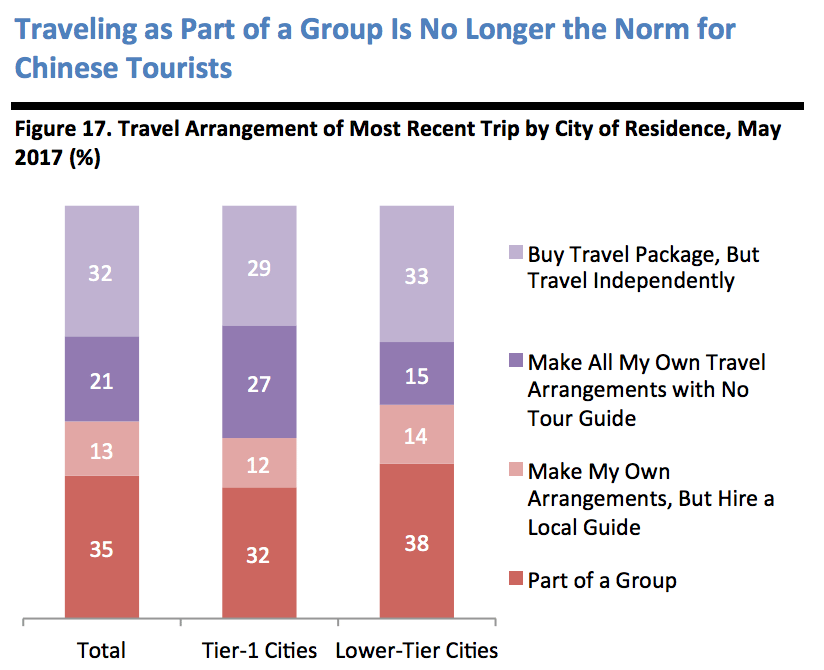
Chart 2: Some 24 percent of respondents said they plan to travel with a group for their next international trip, but more respondents indicated they wouldn’t go with a tour.
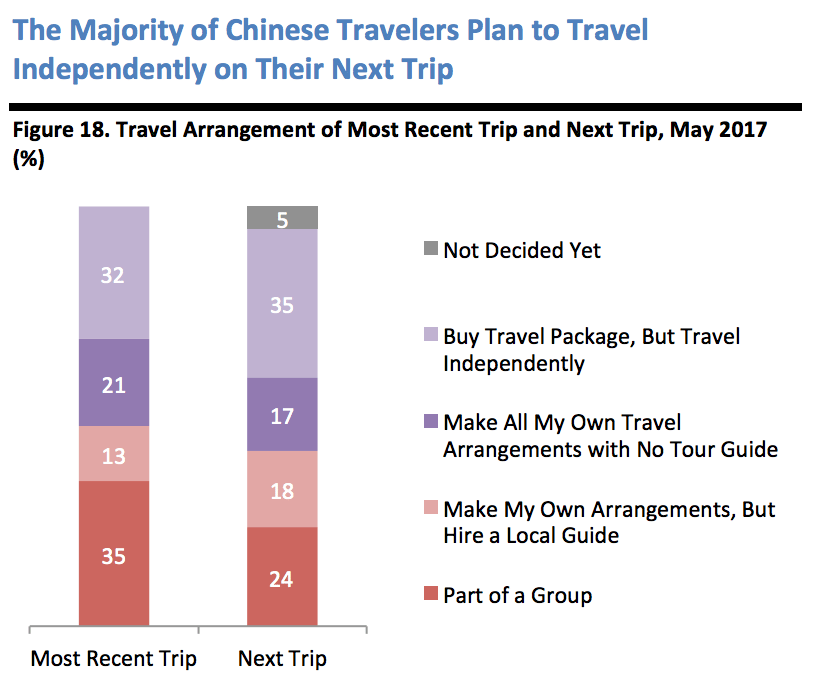
Chart 3: Chinese travelers use their smartphones to communicate with friends and family first and for shopping second, similar to travelers in many other markets.
“Chinese travelers going independently tend to spend more in hotels and dining, and groups tend to spend more on shopping,” said Hartmann.
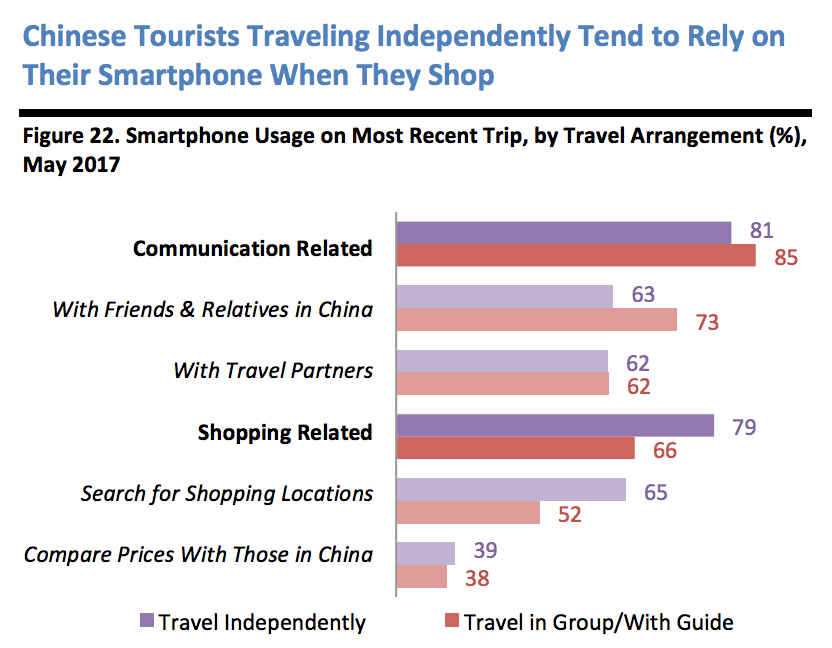
Chart 4: Travel websites and blogs are the most important trip-planning resources for both independent and group Chinese travelers, followed by travel agents and tour guides in second place.
“More influencers on social media are also influencing people to travel on their own, too, and that’s having an effect on the younger segments,” said Hartmann.
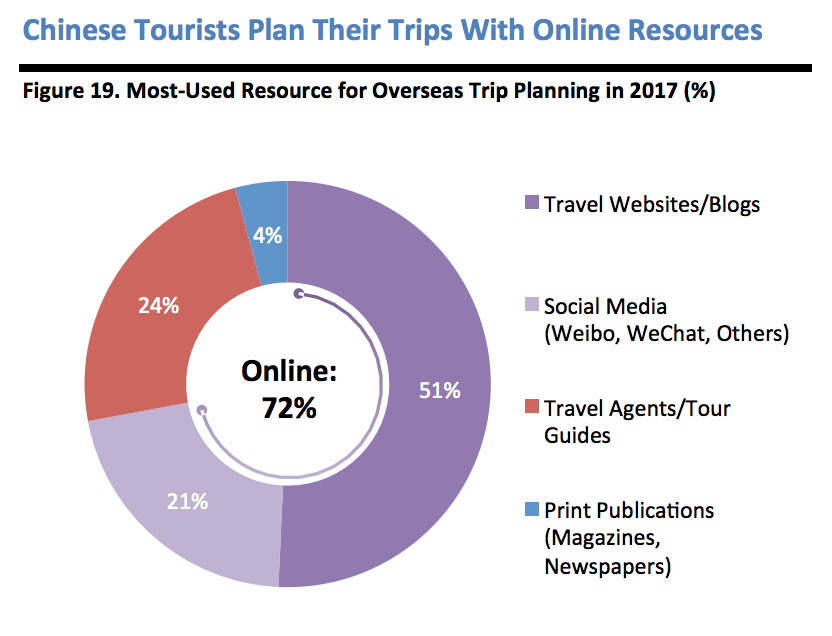
Chart 5: Using social media for trip planning is more popular for younger Chinese travelers while travel websites/blogs and travel agents and tour guides are more utilized by travelers ages 40 and older.
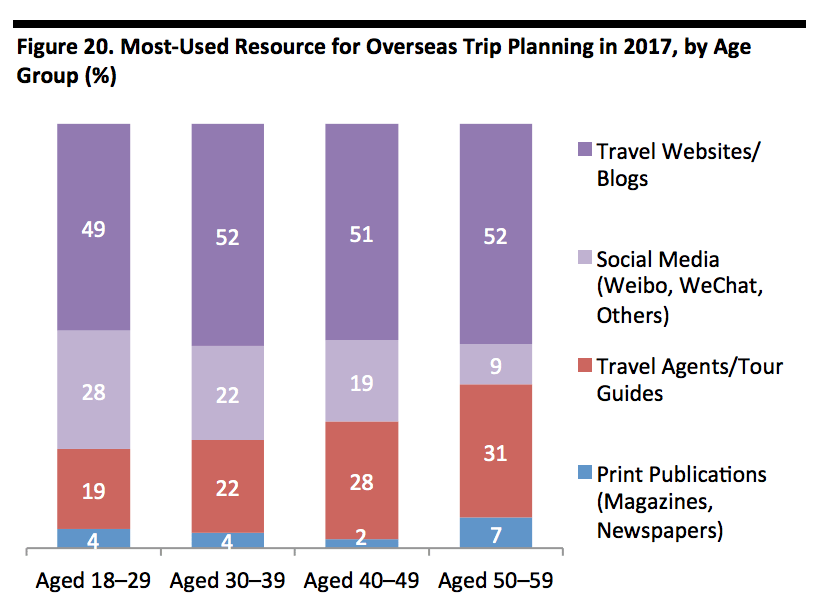
Source: China Luxury Advisors and Fung Business Intelligence Centre
The Daily Newsletter
Our daily coverage of the global travel industry. Written by editors and analysts from across Skift’s brands.
Have a confidential tip for Skift? Get in touch
Tags: china outbound , shopping
Photo credit: More Chinese travelers are choosing to take trips without tour guides or groups. Pictured is a Chinese couple visiting Yamashita Park in Japan. Toshihiro Gamo / Flickr
Stay up to date with notifications from The Independent
Notifications can be managed in browser preferences.
UK Edition Change
- UK Politics
- News Videos
- Paris 2024 Olympics
- Rugby Union
- Sport Videos
- John Rentoul
- Mary Dejevsky
- Andrew Grice
- Sean O’Grady
- Photography
- Theatre & Dance
- Culture Videos
- Fitness & Wellbeing
- Food & Drink
- Health & Families
- Royal Family
- Electric Vehicles
- Car Insurance Deals
- Lifestyle Videos
- UK Hotel Reviews
- News & Advice
- Simon Calder
- Australia & New Zealand
- South America
- C. America & Caribbean
- Middle East
- Politics Explained
- News Analysis
- Today’s Edition
- Home & Garden
- Broadband deals
- Fashion & Beauty
- Travel & Outdoors
- Sports & Fitness
- Climate 100
- Sustainable Living
- Climate Videos
- Solar Panels
- Behind The Headlines
- On The Ground
- Decomplicated
- You Ask The Questions
- Binge Watch
- Travel Smart
- Watch on your TV
- Crosswords & Puzzles
- Most Commented
- Newsletters
- Ask Me Anything
- Virtual Events
- Wine Offers
- Betting Sites
Thank you for registering
Please refresh the page or navigate to another page on the site to be automatically logged in Please refresh your browser to be logged in
Anger after passengers lock toddler in plane’s toilet to stop her from crying
Viral video shows one of the women telling the child that she could only leave the bathroom if she stopped crying, article bookmarked.
Find your bookmarks in your Independent Premium section, under my profile

Sign up to Simon Calder’s free travel email for expert advice and money-saving discounts
Get simon calder’s travel email, thanks for signing up to the simon calder’s travel email.
Two passengers on a flight sparked a backlash in China after they locked up a toddler in an airplane toilet to stop her from crying.
The incident on the flight from Guiyang to Shanghai sparked a heated online debate about how to handle crying c hildren in public spaces.
The two passengers who locked the distressed toddler in the toilet claimed they were trying to help others. However, many people on social media accused them of “ bullying ” the child and lacking empathy.
According to Juneyao Airlines, the child’s grandmother had given permission to the women to "educate" the crying child . The video showed one of the women telling the child that she could only leave the bathroom if she stopped crying.
One of the women, Gou Tingting, defended her actions, saying she wanted to calm the child and allow the other passengers to rest. Responding to the criticism, Ms Gou said she "prefers to take action rather than be a bystander" she wrote on China’s TikTok equivalent, Douyin, reported BBC News.
However, her explanation did little to quell the backlash, and her social media account has since been set to private.
“Children cannot control their emotions when they are one or two years old. What’s wrong with crying? Didn’t you cry when you were young too?” one user wrote on Weibo, reported the British broadcaster.
The incident has raised questions about how to balance the needs of parents with crying children and the rights of other passengers to a peaceful flight.
In January, Corendon Dutch Airlines announced testing adult-only zones on its flights. It confirmed reserving a seat in the child-free section in its flight from Amsterdam to the Caribbean, adding that it will cost an extra €45 rising to €100 for extra-large seats.
And while some were happy to pay to sit in an adult-only part of the plane others wondered how airlines would adequately enforce a separation from noisy children, recalling issues with old ‘no-smoking zones’ on airplanes.
The debate extends beyond flights, with " no-kids zones" flourishing in cafes and restaurants in countries like South Korea. In London, a pub’s decision to ban children sparked a debate about discrimination against parents, particularly women.
Earlier in April this year, a customer who goes by the name Kyle took to X to share a snap of the sign outside of the restaurant, which said: “Dog friendly, child free”.
The tweet went viral on X, with some criticising the restaurant for not letting children in. Others claimed that the restaurant was discriminating against women, specifically those who are with their children.
“Banning children is banning parents. This disproportionately affects women,” one wrote. “If you are more okay eating next to an animal than a human baby and family you’re an ugly person idc.”
Join our commenting forum
Join thought-provoking conversations, follow other Independent readers and see their replies
Subscribe to Independent Premium to bookmark this article
Want to bookmark your favourite articles and stories to read or reference later? Start your Independent Premium subscription today.
New to The Independent?
Or if you would prefer:
Hi {{indy.fullName}}
- My Independent Premium
- Account details
- Help centre

COMMENTS
Independent travel is harder in China than in Europe, for example, as so many things are done differently and in a more complicated way. Below are the things you should consider, before going it alone — self-planned and self-guided — instead of joining a group tour or investing in a private tour.
Introduction In September 2019 we spent a month in China, concentrating on the north east of the country. We were surprised at the relatively small number of independent foreign travellers we met along the way. There seems to be a view held by many in the West, that China is a difficult country in which to travel as an independent traveller, unless you can speak Chinese. Consequently, most of ...
Updated Oct 15, 2021 Looking to travel in China Independently? You definitely need to read this guide about China! Many people believe it's impossible, or at least incredibly difficult, to travel in China independently. However, while there are certainly some challenges for independent travellers, these can be overcome.
When you're figuring out how much to budget for your China trip, it makes a difference whether you choose independent travel in China or Chinese tour groups. For the serious budget traveler, going solo is almost always cheaper (but you'll likely won't be traveling as comfortably). However, because tour groups can get volume discounts and ...
China independently takes a LOT of research and some stress. For nearly all visitors, a visit to China will start with obtaining a visa from the Chinese embassy or consulate nearest them. It's fairly expensive (US$150 or so) and it requires FAR more paperwork and time than visas from other tourist-friendly countries.
The Ultimate Solo Travel in China Guide. China is many things. Crazy, overwhelming and unique are all words that could be used to describe this Asian country. Solo travel in China can seem pretty daunting - it's often near impossible to know exactly what is going on while exploring the country, especially if you have little grasp of the ...
China is fascinating and challenging. Here are 32+ tips on how to thrive in China's culture, how to get around, how to stay healthy and more.
China trip planner. Complete daily routes with all the detail you need. Best of China in 23 days. App including geolocation, offline maps.
Published by Mafengwo and the China Tourism Academy, the "Global Independent Travel Report 2020" covers trends in Chinese independent travel, including the rise of rural and night-time tourism, and new frontiers for 2021.
Travel Requirements When it comes to independent travel in China, one of the first steps is to understand and research the official requirements. To begin
This guide aims to highlight some of these and provide you with a few travel tips to help you cope with independent travel in China. Great Wall of China Mutianyu - just one of the amazing sights you can see during a trip to China Social media. WeChat is in and every other social media platform that you normally use is out.
Traveling independently in China can be an enriching and exciting experience. From exploring historic landmarks to sampling delicious cuisine, China has a lot to offer to solo travelers. However, it's important to be well-prepared and informed about the country's culture, language, and customs. With careful planning and research, you can have a safe and memorable trip. Some recommended ...
One of the best things about choosing a small group tour rather than independent travel is that the tour company takes care of the logistics. After years of independent travel, years of sorting out our own travel arrangements from transport to accommodation to excursions, to finding the best places and the best deals, to knowing whether or not you can trust the taxi driver or if it's safe to ...
Independent travel in China. Jun 8, 2024, 11:14 AM. We are researching a potential trip to China next year and would prefer to travel independently if possible. We are not fans of group tours and would prefer to travel at our own pace and timetable. We would be looking at doing the very obvious trio of Beijing, Xian and Shanghai.
Provide the most reliable info for self-guide travel in China. Join as a member, we'll create personalized and reliable travel itineraries just for you.
See expert recommended itineraries for China Self-guided / Independent - Get all the highlights at the perfect pace. Know the key sights and can't-miss experiences. Make the most of your trip to China Self-guided / Independent! ... Top China Self-guided / Independent Travel Packages. China Self-guided / Independent in 1 week Tours, Cruises ...
Independent travel in China. I have started looking into traveling to China ( Beijing, Xi'an, Shanghai and the 'highlights') in September and can't decide whether I should travel with a tour company or on my own (along with my mother). Tours are convenient and cheap, I have done several before, however, I often wish for more freedom and choice ...
Independent travel in China Watch this Topic Browse forums All Asia forums China forum China forums Motomtoto 2 posts 5 helpful votes Independent travel in China 11 years ago
China: How to travel independently - even if you don't speak the language. I am sitting on board "Harmony", one of China's new generation of superfast trains, as it hurtles through the ...
Independent Chinese travel has increased as the Chinese tourism market matures and travelers become more comfortable visiting places untethered to a tour.
Ancient Buddhas? Ultra-modern cities? Tasty dim sum? Baby pandas? Our list of the best places to visit in China has all this and more.
Chart 4: Travel websites and blogs are the most important trip-planning resources for both independent and group Chinese travelers, followed by travel agents and tour guides in second place.
Anger after passengers lock toddler in plane's toilet to stop her from crying. Viral video shows one of the women telling the child that she could only leave the bathroom if she stopped crying